Joint letter: Urgent European Commission action needed to defend the Fundamental Right to Freedom of Assembly in Hungary
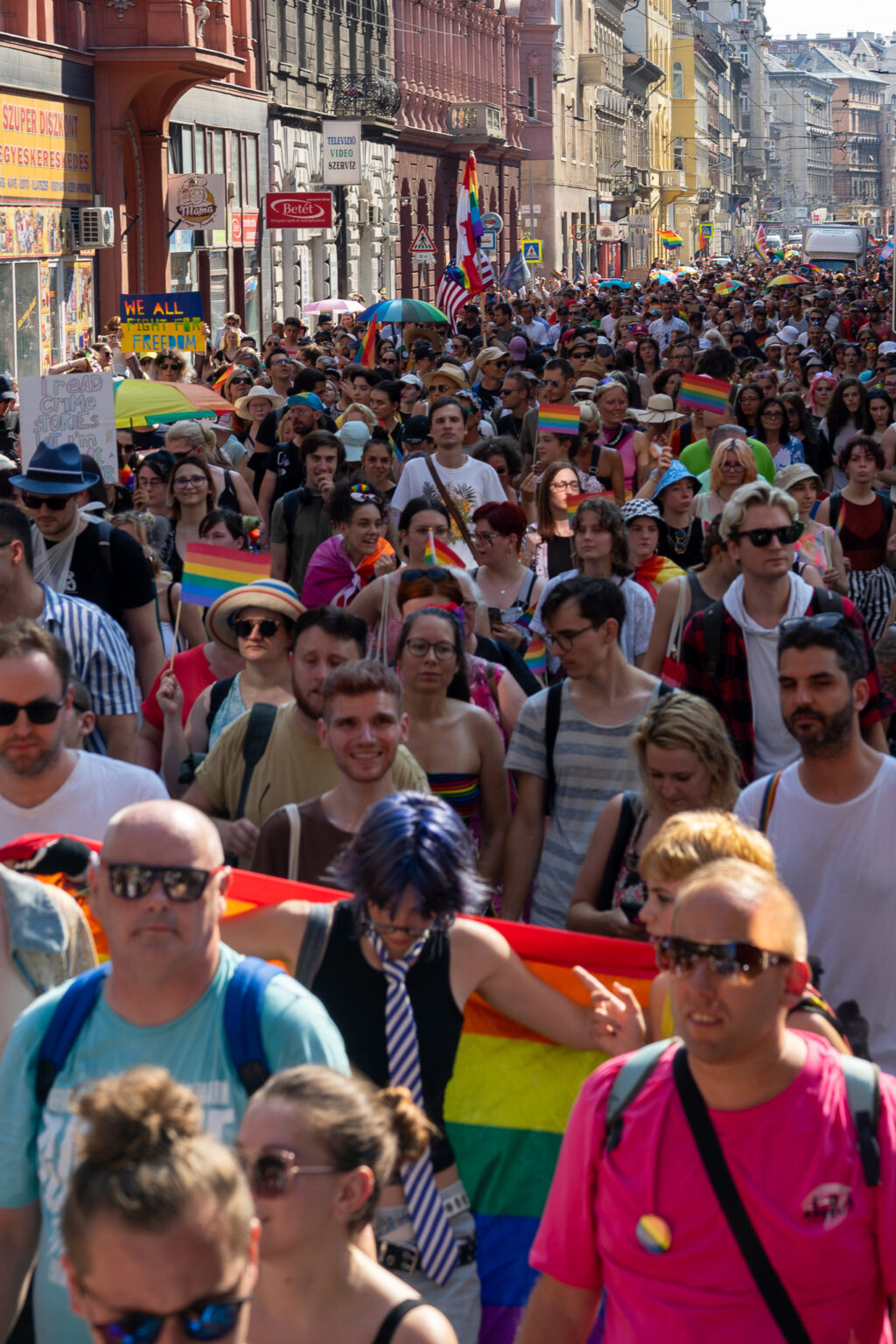
The following letter was sent to President Ursula von der Leyen, Executive Vice-President Henna Virkkunen, Commissioner Michael McGrath, and Commissioner Hadja Lahbib of the European Commission by a coalition of LGBTI and human rights organisations.
Dear President, dear Executive Vice-President, dear Commissioners,
In an attack on the EU fundamental rights of freedom of peaceful assembly and freedom of expression, Hungary’s Parliament passed a package of amendments banning and criminalising Pride marches and their organisers, with penalties including exorbitant fines, and in certain cases, imprisonment, and permitting the use of real-time facial recognition technologies for the identification of protestors, which marks a significant infringement on privacy and personal freedoms, also protected under EU law.
The amendment package was fast-tracked through Parliament in just one day, with no consultation or debate. It marks a significant erosion of the rights to freedom of assembly, freedom of expression, privacy and other fundamental rights in Hungary.
This amendment package builds on the 2021 ‘anti-LGBTIQ+ propaganda’ law, which is currently being challenged before the CJEU (C-769/22), and expands its application to the exercise of the right to freedom of peaceful assembly. Additionally, since the implications of the amendments extend much more widely, it is not only the Pride march that faces restriction but all future assemblies organised by LGBTI people.
We demand urgent action from the European Commission to ensure Pride organisers and people marching on 28 June 2025 in Budapest will be safe and able to enjoy their rights to peacefully assemble and to protest. This can be done through requesting an interim measure from the CJEU by 27 May; either through the ongoing infringement procedure already pending at the CJEU (C-769/22), or through a fresh infringement procedure against the new amendment package.
The date by which this years’ Pride march needs to be registered with Hungarian authorities is 27 May, and within 48 hours at the latest the police will issue the ban. Therefore an urgent action for the interim measure from the European Commission is needed before that date to protect this year’s Pride organisers and the fundamental right of every citizen of the European Union to march and assemble in Budapest.
While many politicians, policy-makers and human rights organisations from across the EU will join the Pride in Budapest in June to support defending the right to march, it is your institution alone that has the power at this stage to initiate an intervention with the potential to rectify this violation of EU fundamental rights and values, including the Treaties, the Charter of Fundamental Rights and a number of EU directives and regulations, and thus provide legal protection for Pride organisers and the people who will be marching.
Without immediate action from the European Commission, through an interim measure in either the ongoing infringement procedure against the ‘anti-LGBTIQ+ propaganda’ law or in a new one encompassing the entirety of the recent amendments, the risk of serious and irreparable harm is imminent, including significant fines, the possibility of imprisonment of individuals, dispersal of the march, and dissolution of organisation(s) responsible for the organisation of the march.
We are including relevant European Commission services in this public letter and hope to hear from you shortly.
We remain at your disposal for any further information you might need to act in this case.
Kind regards,
List of signatory organisations
All Out
Amnesty International
Araminta
Budapest Pride
Center for Reproductive Rights
Civil Liberties Union for Europe
EDRi (European Digital Rights)
Eurocentralasian Lesbian* Community – EL*C
European Center for Not-for-Profit Law (ECNL)
Forbidden Colours
Háttér Society
Human Rights Watch
Human Rights Without Frontiers
Hungarian Civil Liberties Union
Hungarian Helsinki Committee
IGLYO
ILGA-Europe
International Commission of Jurists (ICJ)
International Federation for Human Rights (FIDH)
International Planned Parenthood Federation – European Network (IPPF EN)
International Service for Human Rights
OII Europe
RECLAIM
The Netherlands Helsinki Committee
TGEU – Trans Europe and Central Asia
Freedom to Protest Is Under Attack – Why It Matters for Everyone

When states suppress public protests, they don’t just target activists, they erode the rights of all citizens. The latest crackdowns in Hungary, Turkey, and beyond show why defending freedom of assembly is more urgent than ever.
On 8 March, people took to the streets to mark International Women’s Day, but their right to march was actively suppressed in many places. From Kazakhstan to Turkey and Azerbaijan, authorities used intimidation, force, and legal threats to prevent women from gathering, exposing a broader pattern of restrictions on civil society. Meanwhile, in Hungary, the government has escalated its efforts to suppress freedom of assembly, passing a law that explicitly bans Pride marches and introduces surveillance measures to deter participation.
Crackdowns on feminist and LGBTI protests
Ahead of Women’s Day, Kazakhstan authorities detained LBT activists from Feminita, using penal and administrative tactics to suppress their activism. In Turkey, nearly 200 people were detained in Istanbul alone, with police blocking demonstrations across multiple cities on the 8th. Among those detained was a trans woman, underscoring how trans activists are often specifically targeted. In Azerbaijan, feminist activist Rauf Heydarov was sentenced to 30 days of detention after attempting to display a poster on 8 March, with fabricated charges used to justify their arrest. These cases illustrate how states use arbitrary detentions and legal mechanisms to intimidate activists and restrict their right to assemble and protest.
Hungary: From threats to an outright ban on Pride
In Hungary, restrictions on freedom of assembly have intensified dramatically. What started as a “child protection” law—banning the “depiction or promotion” of homosexuality to minors and widely condemned by EU leaders, the European Commission, and the Council of Europe as violating international human rights standards—has now escalated into a nationwide ban on Pride marches. The new law not only criminalises these events but also permits the use of facial recognition technology to track and penalise participants. Despite this, the Budapest Pride organisers remain committed to marching, demonstrating the resilience of the movement in the face of increasing authoritarianism.
A key indicator of democratic health
These events in Hungary, Turkey, Kazakhstan, and Azerbaijan are not isolated incidents. They reflect a broader trend in which governments seek to silence peaceful and legitimate dissent by restricting public demonstrations, targeting women’s rights and LGBTI activists, and using legal measures to suppress fundamental rights. The ability to protest is a key indicator of democratic health. When states criminalise peaceful assembly, they erode not just rights for LGBTI people and women, but the broader foundation of civil liberties for all.
As these threats grow, the international response must be clear. Governments, the EU, and international institutions must hold states accountable for these violations and stand in firm defence of the right to protest. Freedom of assembly is not just an LGBTI or feminist issue; it is central to human rights and democracy. When one group’s right to gather is restricted, the ability of all people to organise and demand change is at risk.
The human right to assemble and protest must be protected, defended, and upheld.
Hungary’s Parliament Passes Law Banning Pride
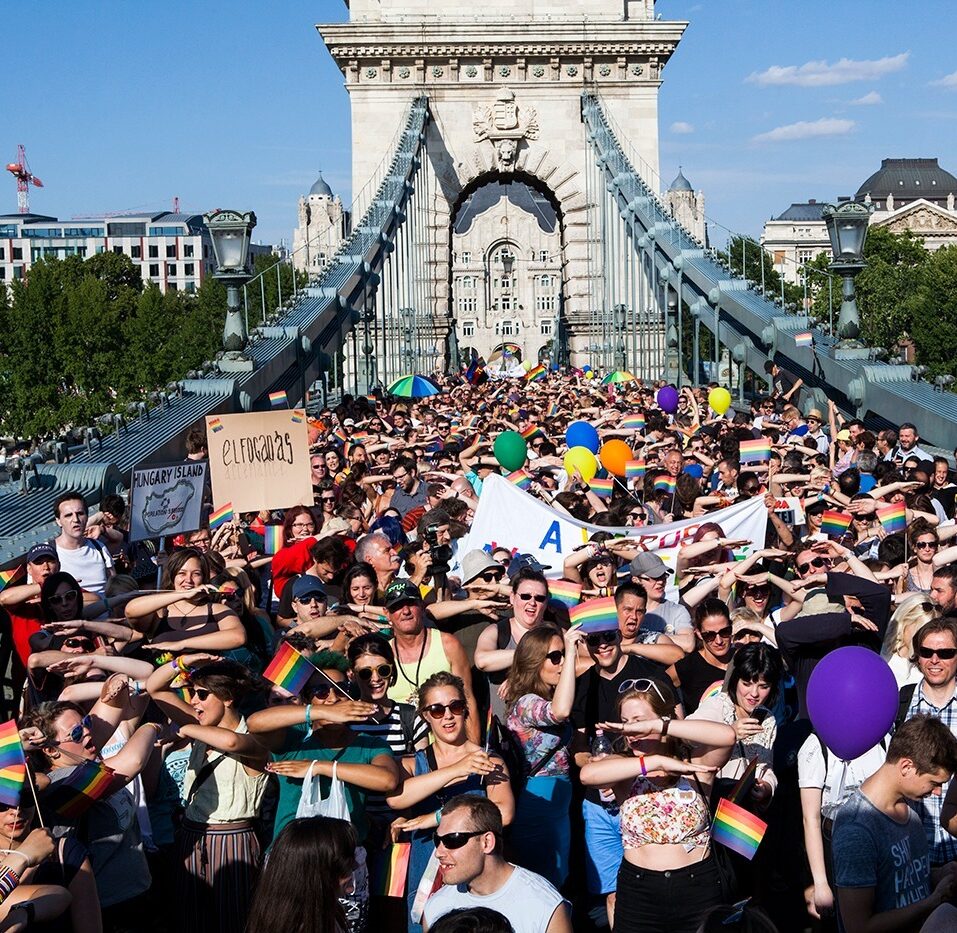
In an attack on freedom of assembly, Hungary’s Parliament has passed a controversial law criminalising Pride marches and allowing the use of facial recognition technology to target participants.
In a deeply troubling development, Hungary’s Parliament has passed a law banning Pride marches across the country. The law was fast-tracked through Parliament in just one day, with no consultation or debate, marking a significant erosion of freedom of assembly and human rights in Hungary.
The newly passed legislation expands Hungary’s already controversial “child protection” law, which prohibits the “depiction or promotion” of homosexuality to minors. This law reinforces harmful and outdated stereotypes about LGBTI individuals and their rights.It takes this one step further by criminalising Pride events, both for organisers and participants, while also granting authorities the power to use facial recognition technology to track, identify, and fine attendees. This measure has been condemned as a significant infringement on privacy and personal freedoms.
According to ILGA-Europe’s Executive Director, Chaber: “This new law is more than just a ban on a single event. It represents an assault on the fundamental freedoms of expression, assembly, and protest, and an attempt to silence the LGBTI community in Hungary. It is an effort to erase LGBTI people from public life and restrict their ability to peacefully protest. More restrictions on the rights of other people will follow.”
The government’s actions have sparked widespread protests. Yesterday, thousands gathered outside Parliament, chanting anti-government slogans. The organisers of Budapest Pride also remain defiant. This year marks the 30th anniversary of the Budapest Pride march, and they are committed to marching on June 28, 2025.
“The international community must rally behind the people of Hungary, demanding the protection of their right to peacefully assemble and protest,” Chaber added. “As Pride marches continue to grow and oppose authoritarianism worldwide, the fight for LGBTI rights becomes even more vital in the broader struggle for democracy and human dignity.”
Statement: Orbán’s threat to ban LGBTI Pride marks a dangerous step toward silencing dissent

Hungarian Prime Minister Viktor Orbán’s threat to ban the 2025 Budapest Pride march has sparked outrage, with concerns over restrictions linked to the country’s anti-LGBTI law. ILGA-Europe stand in solidarity with the organisers of Budapest Pride, and assert the Hungarian people’s right to peaceful protest.
On 22 February, the Hungarian Prime Minister, Viktor Orbán, delivered a speech in which he threatened to ban Budapest Pride. During his State of the Nation address, Orbán said: “I advise the Pride organisers that they should not bother preparing for this year’s march. It would be a waste of time and money”.
While no legislation has yet been tabled to outright ban the 2025 Pride march, the government has referred to restrictions on its location, justifying this on the basis of the Hungarian anti-LGBTI law adopted in 2021, which bans promotion or portrayal of so-called “divergence from self-identity corresponding to sex at birth, sex change or homosexuality” to minors. This effectively bans depictions or “promotion” of LGBTI identities in the public space or anywhere where minors could be present or see LGBTI related content.
The European Commission has taken Hungary to court over this aforementioned law, and any restrictions or bans on Pride would also contravene laws related to freedom of assembly and freedom of expression, protected in both international law1 and Hungary’s own Constitution2.
Last year, 35,000 people marched, making Budapest Pride the largest recurring civil rights demonstration in the country. Activists anticipate that this year’s march will be Hungary’s largest Pride ever. Many Hungarians who have never attended any Pride marches are publicly declaring their intention to join because the government is threatening a ban.
Banning Pride in Budapest would eliminate a crucial platform for Hungarians to demand that their government listen to its people and uphold democratic values. It would mark a dangerous step toward restricting the right to protest and silencing dissent.
We affirm the value and importance of Pride as a peaceful gathering to assert the equal human rights of LGBTI people, in the context of demanding equal human rights for all. We decry any attempt to stamp out Pride as an attack on everyone’s right to freedom of assembly. We stand in solidarity with Budapest Pride, who will march on June 28, and are determined to fight all obstacles laid in front of them. We urge the authorities in Hungary and every democratic state to respect and protect the right to peaceful assembly. A society that upholds human rights for all is a stronger, more just society for everyone.
LGBTI rights are human rights
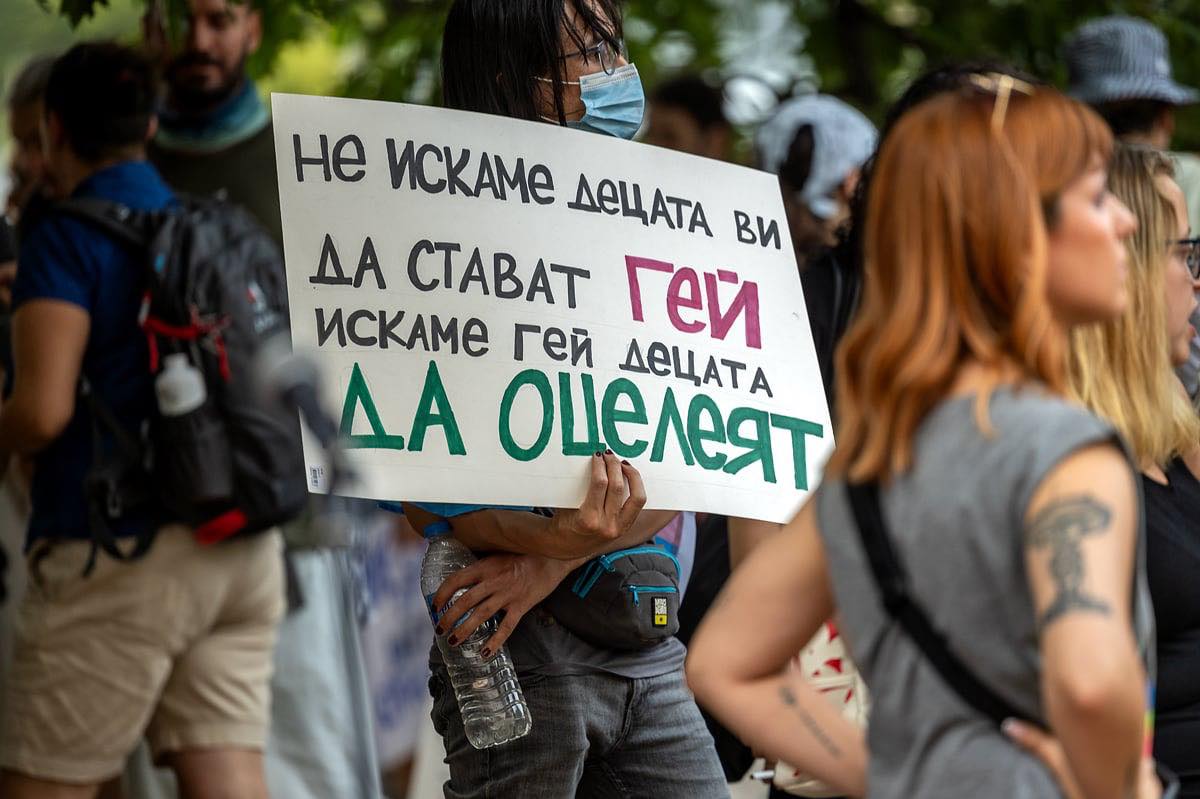
On Human Rights Day we reflect on struggles and milestones for the European and Central Asian LGBTI movement in 2024.
Human Rights Day reminds us of the universality of human rights: freedoms that belong to all people, no matter their identity. This principle is at the heart of the LGBTI movement, as LGBTI rights are human rights. In 2024, these rights were both challenged and celebrated, often reflecting broader societal shifts.
Across Europe and beyond, anti-LGBTI measures highlighted the fragility of hard-won freedoms. Georgia adopted both a “foreign agent” law and an “anti-LGBTI propaganda” law, echoing a troubling global trend of restricting civil society and stifling dissent. On December 2nd, the restrictive law came into force, banning legal gender recognition and equating same-sex relationships with incest, further institutionalising discrimination against LGBTI communities. The law also declared May 17 a holiday opposing the International Day against Homophobia, Transphobia, and Biphobia, amplifying the state’s anti-LGBTI stance. Bulgaria introduced laws targeting the discussion of LGBTI issues in schools, marking another attack on both education and freedom of expression. In Russia, the international LGBTI movement was branded as “extremist” in late 2023, but 2024 saw the first convictions under this extremist label, intensifying the risks for activists and organisations. Kyrgyzstan followed suit by enacting a Russian-style “foreign agents” law in April, subjecting non-profits to extensive state oversight and jeopardising the work of press freedom groups and civil society, including LGBTI organisations.
These developments show how attacks on LGBTI rights often signal deeper human rights violations. In Turkey, trans rights faced severe setbacks with new regulations restricting access to essential hormones, disproportionately affecting trans masculine people and those in poverty. Police repression of LGBTI demonstrations further highlighted the shrinking space for activism and public dissent. The suppression of freedom of speech, association, and democratic principles often accompanies discrimination against LGBTI communities. As such, defending LGBTI rights is part of defending the foundations of democracy and equality for all.
Progress, despite setbacks
Despite these setbacks, 2024 was also a year of hope and progress. Germany’s adoption of a self-determination law marked a major step forward for trans and non-binary people, simplifying legal gender recognition. Greece joined the growing list of European countries recognising equal marriage, while Malta’s introduction of non-binary markers on official documents underscored its commitment to inclusivity.
Beyond Europe, global human rights institutions also made strides for LGBTI people. The UN Human Rights Council adopted a resolution affirming the rights of intersex people, a relevant step in recognising and addressing the unique challenges they face. The European Court of Human Rights ruled that Poland must provide legal recognition for same-sex couples, and the Court of Justice of the European Union declared that Romania must respect gender recognition granted in other countries.
Ensuring no one is left behind
These moments of progress illustrate that advancing LGBTI rights benefits societies as a whole. Laws that affirm equality and dignity strengthen the social fabric, ensuring that no one is left behind. This year’s developments—both the setbacks and the victories—show that progress is possible, but it requires vigilance, solidarity, and collective action.
In February 2025, ILGA-Europe will publish its Annual Review, documenting these and other critical moments from the past year. Stay tuned!
New regulations pose greater risks to trans people in Turkey
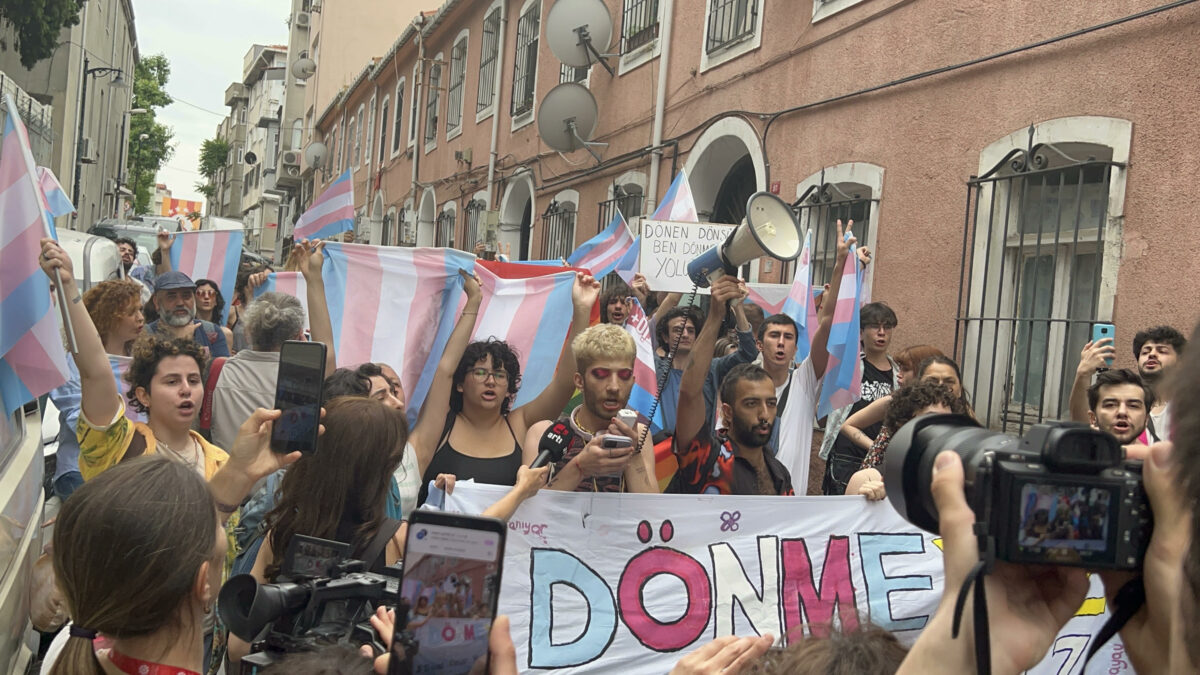
New changes from the Turkish authorities to the accessibility of hormones for trans people further threaten health and lives
On 20 November, the Turkish Medicines and Medical Devices Agency announced a new regulation that requires an e-prescription to access certain hormones used by trans people. The restrictions regulate access to hormones used mainly by trans masculine people as well as hormones used to treat diabetes. The two hormones under this new regulation used by trans women are also the same hormones used by cis women for birth control. This regulation therefore not only impacts trans people but also cis women and people with diabetes.
The new regulation exposes the pre-existing inadequacies in access of trans persons to healthcare services. While the regulation can be seen as an attempt to regularise the process of distribution and use of hormones, making the procurement and treatment safer for users, the Turkish healthcare system is extremely inaccessible for trans people, in particular as regards trans-specific healthcare. As a result, this new regulation will have severe consequences for trans people.
Currently in Turkey university research hospitals are the only hospitals that have specific gender transition councils which assess and provide a medical report for trans persons, which doctors then use to prescribe the necessary hormones. However, these hospitals are only available in 13 of the 81 provinces (usually those with major cities), resulting in those trans people living in rural areas having to travel to one of these 13 provinces. The journey time is usually long, and appointment availability is scarce, making such trips less affordable and accessible. For those who already live in major cities, it is still difficult to access the healthcare system as appointments are rarely available due to high demand – it can take several months to secure a first appointment. Subsequent appointments also have a similar waiting time. In total, it takes a minimum of six months to receive the necessary report for accessing hormone prescriptions. It is time and resource-intensive, and transphobia is often encountered along the way.
Hormones are a key part of trans-specific healthcare for many trans people – they impact not only physical traits but also frequently psychiatric health and wellbeing. For trans persons who have had their gonads removed, hormones are critical for good physical health, as stopping hormone therapy can lead to osteoporosis, among other things.
As a result, this new regulation will have severe negative consequences for the healthcare and mental health of trans people across Turkey, in particular trans masculine people and trans people in poverty. Many trans people will no longer be able to access these hormones, and some will even turn to unregulated pathways to procure them, which can result in health risks and exorbitant prices.
For such a prescription regulation to produce positive effects, the Turkish healthcare system needs to be restructured in such a way as to ensure that trans people can access healthcare in hospitals in all areas of the country. Trans-specific healthcare needs to be more widely provided and understood so that the current high demand can be met, with medical professionals ensuring the right to health of each patient, without discrimination.
More broadly, Turkey should uphold the case law of the European Court of Human Rights on legal gender recognition under Article 8. It should introduce a new legal framework that is quick, transparent and accessible with no requirements for invasive surgeries, and wide access to trans-specific healthcare. It should comply with the World Health Organisation’s 11th revision of the International Classification of Diseases which depathologises trans people in all areas of life.
Recent incidents of limitations on the right to freedom of assembly for LGBTI people in Turkey
On 20 November police blocked a demonstration to commemorate victims of transphobic violence in Ankara on the International Trans Day of Remembrance, and arrested four people, including a member of the Ankara Bar Assocation.
On 23 November police intervened in a demonstration by trans activists in Istanbul against the new e-prescription regulation, detaining 38 people. They were released after providing statements to the police.
On 25 November – The International Day for the Elimination of Violence Against Women – hundreds of people took to the streets in cities across the country, and were met with police repression in many cases. In particular, in Istanbul, the Governor’s Office banned all protests and demonstrations on the specified date, and police interventions resulted in 169 arrests. All of those arrested have since been released, apart from two LGBTI+ people from Azerbaijan, who were taken to repatriation centres. Due to the severe conditions and ill-treatment they were subjected to, including being deprived of food and medications, they were forced to “voluntarily return” to Azerbaijan. One of them was an LGBTI+ human rights defender from Azerbaijan who immigrated to Turkey due to being at risk of arrest in their country.
In Turkey LGBTI+ people are regularly subjected to arbitrary detention (often with excessive police force) and charged for participating in public events, or for holding rainbow flags in the public space. Public demonstrations are frequently banned or postponed under the pretext of “national security”, “public order”, “prevention of crime”, “protection of public health” or “public morals”, with police and governors excessive powers. These practices which include vague limitations on public assemblies allowing for arbitrary interpretation, breach Turkey’s own Constitution (Article 34) and the European Convention on Human Rights (Article 11) to which Turkey is party. Turkey should bring its practices in line with the ECHR and its own Constitution, halting arbitrary banning of protests and detention of participants.
The Turkish LGBTI+ community resists bans on Pride events again this year, amid increased repression from the Turkish government
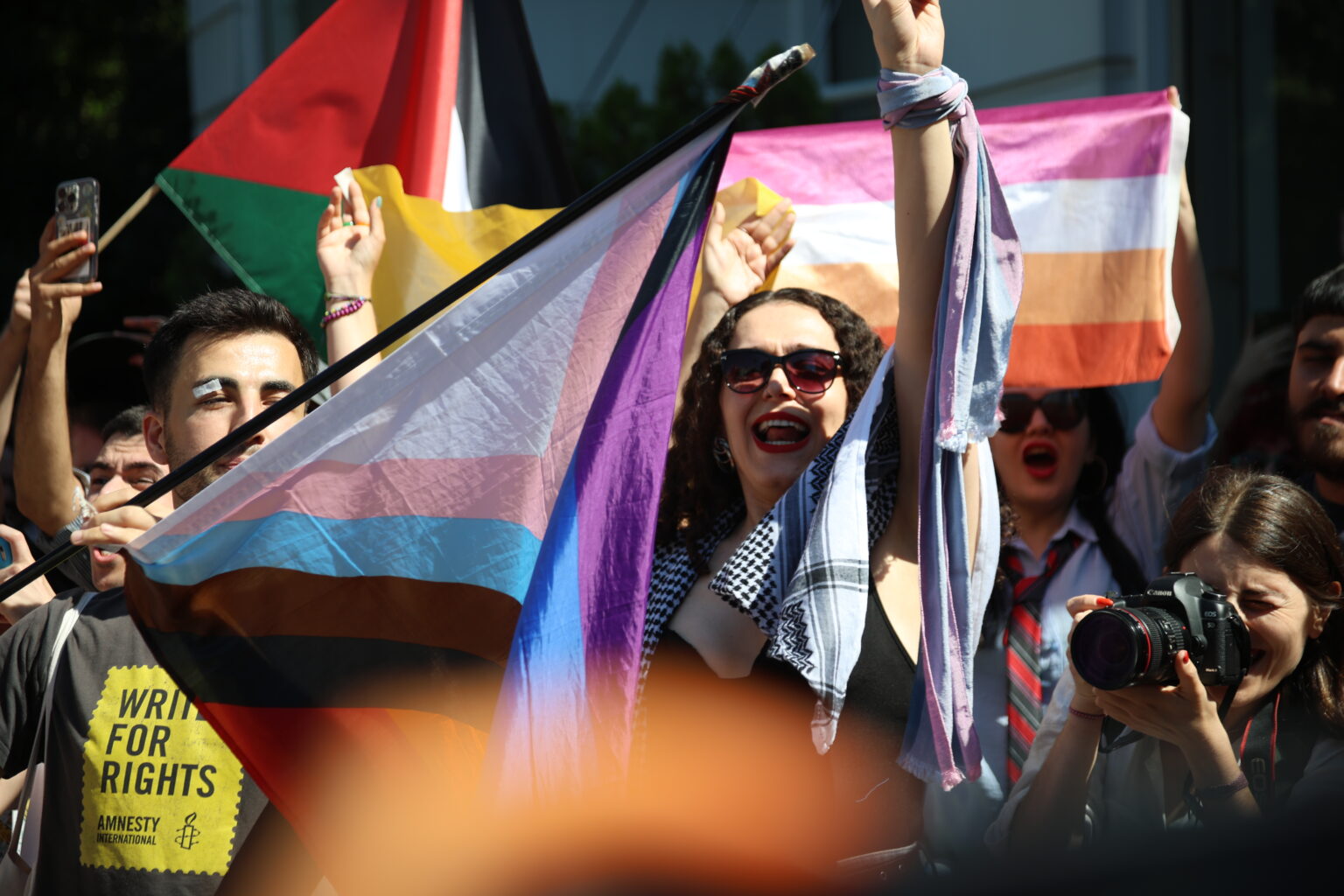
Amid increased repression from the government, the Turkish LGBTI+ community courageously and creatively resists bans on Pride events again this year
This year’s Pride season in Turkey saw continued bans on LGBTI+ themed events, as well as police repression, as the government continues to disregard the fundamental right to freedom of assembly and expression for LGBTI+ people. LGBTI+ activists across the country stepped up their tactics to avoid police repression, bans and arrests as much as possible.
METU, 31 May
On the METU student campus, Pride took place without intervention, as organisers moved the start time from 18:00 to noon.
Eskişehir, 9 June
Ten LGBTI+ activists were detained and subjected to torture. For the first time since 2015, four of the detained activists were referred to court with a demand for arrest. Later, all four of them were released.
Ankara, 12 June
The Ankara Pride committee, in response to police barricades and water cannons set up in many parts of the city, organised the march on another route. The police were therefore unable to intervene and no one was detained.
Trans Pride Istanbul, 23 June
The Istanbul governor’s office blocked metro stations in anticipation of Trans Pride, and hundreds of police officers were sent to the Beyoğlu, Şişli, and Beşiktaş districts, setting up checkpoints, barricades, and water cannons to blockade many roads. As a result, organisers decided not to hold a mass march; instead, they hung trans flags in different public locations. Two people were detained while sitting inside a café.
Izmir, 29 June
In İzmir the Pride march was held in Bornova one day before the official march was called to go ahead. This change in timing prevented any interventions.
Istanbul, 30 June
During Pride week in Istanbul, two events, one in Şişli and one in Kadıköy, were banned by district governors. The Istanbul Governorship issued a ban on Taksim and Istiklal Street in the early hours of the day of the Istanbul Pride march and described the Istanbul LGBTI+ Pride Week Committee as “various illegal groups”. The police were waiting at Taksim, Beyoğlu but the activists held the march instead at Bağdat Street of Kadıköy (on the Anatolian side) which was the first Istanbul Pride march on the Anatolian side of the city. Activists made a press statement and marched for approximately ten minutes before the police caught up and dispersed the crowd. Eleven people were arrested after the march ended, three of which were minors, who were handcuffed behind their backs in violation of the Child Protection Law. All were released after approximately eight hours.
Antalya, 1-15 July
All protests and events were banned by the governorship for 15 days, from 1-15 July, when Pride events were due to take place. The Pride march went ahead on July 14 and it was attacked by police, who arrested four participants.
Resilience and Creativity of Pride Organisers
It is clear that following the national elections of May 2023, and the municipal elections of March 2024, both marred by significant anti-LGBTI+ rhetoric, smear campaigns, and misinformation, institutionalisation of anti-LGBTI+ actions is on the rise. The international community must not be fooled by the reduction in arrests and violence during this year’s Pride season – much of this was avoided by the creativity and resilience of Pride organisers. Meanwhile hatred against LGBTI+ people from government and institutions is still coordinated and becoming more entrenched in policy.
Alarming developments in 2024
While Turkey continues to disregard its obligations under its own constitution and international treaties to which it is party to ensure the right of freedom of assembly and expression for all, it is also stepping up institutional targeting of the LGBTI+ community. Anti-LGBTI+ rhetoric by key political figures continues, related to more institutional contexts.
In June, the Minister of Family and Social Services Mahinur Göktaş presented the new 2024-2028 Action Plan for the Protection and Strengthening of the Family. This Action Plan contains measures to combat “deviant harmful ideology” of LGBTI+ people. The Minister stated that “Family structure is being destroyed by impositions carried out on a global scale” and President Erdogan added that “the imposition of LGBT has become a tool of tyranny, oppression and the corruption of society that even surpasses fascism”.
Misinformation is being institutionally supported, as one of the actions of the plan is that “documentary/program studies will be carried out on the negative effects of harmful trends and habits that threaten families on human nature and rights, family structure and society, especially on children, and existing broadcasts will be translated into Turkish.”
As has been seen with the government’s support to the Big Family Platform, LGBTI+ people are wrongfully framed as a “threat to the family”. The Speaker of the Grand National Assembly of Turkey, Numan Kurtulmuş, during his meeting with the Big Family Platform, an organisation organising anti-LGBTI+ hate rallies and calling for the closure of LGBTI+ organisations, targeted LGBTI+ individuals by referring to them as “deviant movements.”
The Ministry of Foreign Affairs is tasked under the Action Plan with creating connections with actors with similar agendas abroad, which implies further institutionalisation of the anti-gender movement.
The Presidency of Religious Affairs has also released its 2024-2028 Action Plan, which pledges over two million lira to fight against the LGBTI+ movement. The plan’s states that “homosexuality and its derivatives” are deviant and socio-cultural threats at the individual, family and societal level. Included in the actions, the General Directorate of Religious Publications is expected to prepare 40 publications similar to the “Family Magazine” until the end of 2028 “to protect the family against deviant ideologies that threaten the family”. “Family Magazine” is published by the Directorate General of Religious Publications and targets LGBTI+ people.
As we raise these alarming developments, we continue to call on international institutions to raise these issues in all relevant meetings with Turkish authorities, and for donors to further support Turkish LGBTI+ civil society in the face of the increased state-led repression.
Significant European Court judgments in two cases concerning violence against LGBTI people involving state agents
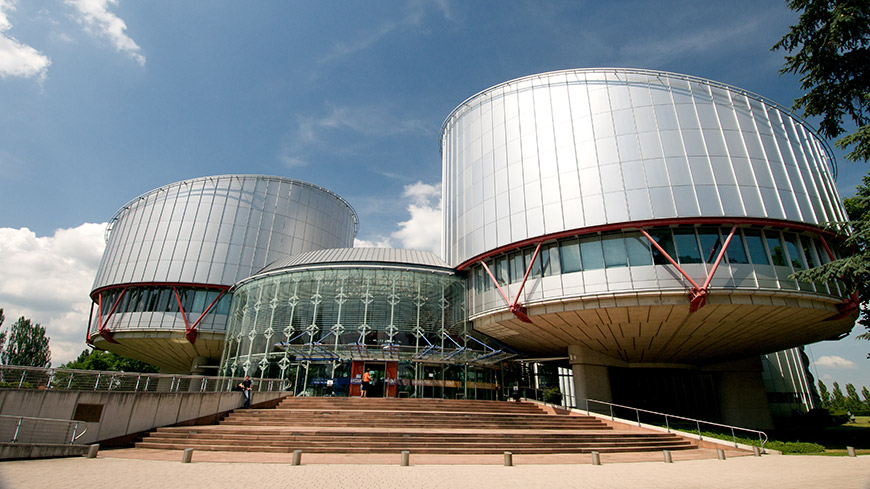
Two successful European Court cases brought against Russia underline state obligations to protect LGBTI community from violent counter demonstrators and general hate motivated violence.
ILGA-Europe welcome yesterday’s judgments from the European Court of Human Rights in Romanov and Others v Russia and Lapunov v Russia. Romanov and Others v Russia concerned Russia’s failure to prevent and protect LGBTI community members from homophobic violence during peaceful demonstrations and ensure effective investigation. The applicant in Lapunov v Russia was one of the victims of the “anti-gay purges” that took place in Chechnya in 2016-2017, having been detained and tortured in March 2017.
According to ILGA-Europe’s Head of Litigation, Arpi Avetisyan, “These cases are of great significance for the recognition of the rights of LGBTI people that have suffered by inaction or actual infliction of violence by state agents.
“Importantly, the Court observed that even when investigations were initiated, the homophobic nature of the attacks was rejected by the authorities, therefore could not be considered as effective.”
The Court found that physical and phycological treatment suffered by Mr Lapunov in Chechnya amounted to discriminatory torture under the European Convention of Human Rights. Furthermore, the authorities failed to carry out effective and meaningful investigation to uncover violence based on sexual orientation, despite all the evidence provided.
Russian LGBTI organisations, who worked to support both cases before the Court, note that although Russia has left the Council of Europe and is not party to the European Convention since March 2016, it is unlikely to implement these judgments. They are however symbolically important for persecuted people in Russia, as they give hope and a sense of support from the international community. It is crucial that state-sponsored homophobia does not go unnoticed.
Avetisyan concluded: “These cases are another affirmation by the Court on Council of Europe member state obligations to protect LGBTI community from violent counter demonstrators and general hate motivated violence, and to ensure timely and effective investigations in such cases.”
How attacks on Pride are jeopardising Turkey’s hopes for accession to the EU
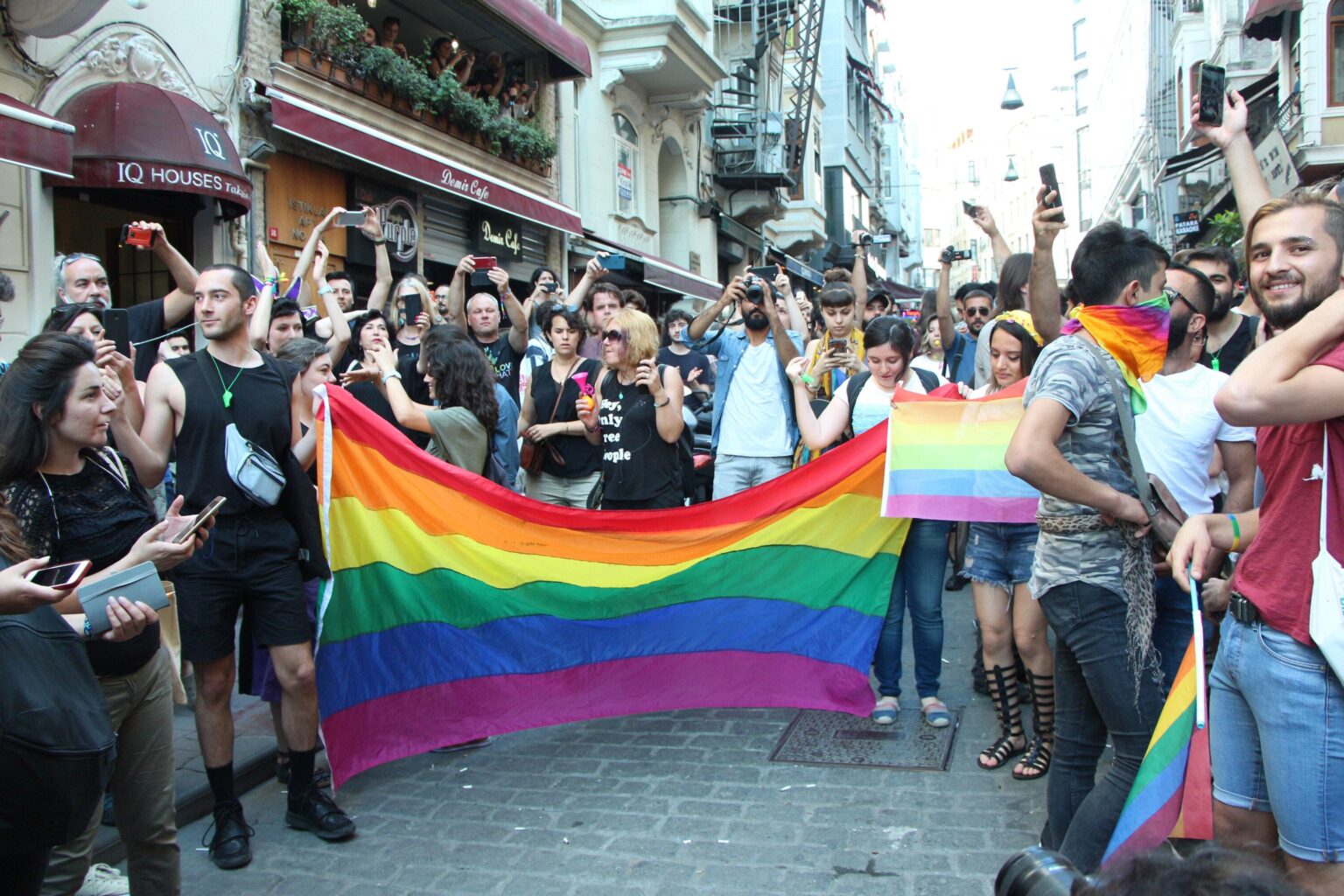
After the detention of 241 individuals at 11 Pride events this summer, the Turkish government must understand that respecting the rule of law and fundamental rights, including those of LGBTI people, is a precondition for becoming an EU member state.
EU accession has once again taken centre stage on Turkey’s political agenda. Since his re-election in May 2023, President Erdoğan has reignited EU accession conversations, stagnant for several years. However, amid this renewed pursuit, the attacks on Pride events and potential regressive changes to the constitution underscore the precarious state of human rights in Turkey. Upholding the fundamental rights of all, including LGBTI people, and ensuring the rule of law remain the cornerstones of the EU. Any future discussions regarding closer ties with the EU must hinge on Turkey’s unwavering commitment to safeguarding these principles.
Erdoğan’s crackdown on Pride
Following the presidential election, marred by a high volume of anti-LGBTI statements, the Pride season in Turkey bore witness to both immense courage and hatered stoked by the state. A record number of Pride events were planned this year, and while some took place without obstruction, many encountered police repression and bans.
Authorities violently interrupted 11 LGBTI-themed events and Pride marches, leading to the detention of 241 people, including four children, seven lawyers, five foreigners, journalists, and activists. Particularly shocking was the case of Iranian LGBTI+ activist Elyas Torabibaeskendari, held in a detention centre despite his international protection status and at risk of deportation to his home country, where he could face a death sentence.
Portuguese national Miguel Alvaro, who was on holiday in Turkey during the event, alleges that he was assaulted by police officers due to his assumed appearance as gay, leading to his 20-day detention without explanation. Protestors also reported incidents of reverse handcuffing, manhandling, and prolonged confinement in vehicles without proper ventilation.
According to human rights activists, the use of torture and ill-treatment by the police was more widespread compared to previous years. It is crucial to remember that the excessive use of force by the police violates the right to peaceful assembly, protected under both domestic law and international treaties, such as the European Convention on Human Rights, to which Turkey is a signatory. Despite the pressure, LGBTI activists displayed resilience, with many Pride events going ahead peacefully, exemplifying the strength and determination of the LGBTI movement in Turkey.
Constitutional amendments: A stride backwards in LGBTI equality
Earlier this year, the Turkish Parliament expanded the threat to LGBTI citizen’s rights. Among various draft amendments to the Constitution, one stood out as direct discrimination against LGBTI people. Under the guise of protecting the institution of the family “against the impositions of pervert movements,” the legislature sought to redefine marriage as “the union of a man and a woman,” essentially eliminating the possibility of introducing same-sex marriage in the country. While the proposal was eventually withdrawn in the aftermath of Turkey’s devastating earthquake and later elections, this amendment, incompatible with the principle of non-discrimination enshrined in the EU treaties and the Charter of Fundamental Rights, is anticipated to re-emerge in the upcoming legislative term.
LGBTI people’s rights are at the core of the EU
Amidst the curtailment of LGBTI freedoms and deeply concerning legislative proposals, the journey to Turkey’s EU accession demands a resolute commitment from all sides to protect the fundamental rights of LGBTI people. LGBTI people’s rights are not negotiable and Turkey’s road to becoming a member of the EU must be based on the Union’s founding values.
Monitoring Pride in Turkey 2023
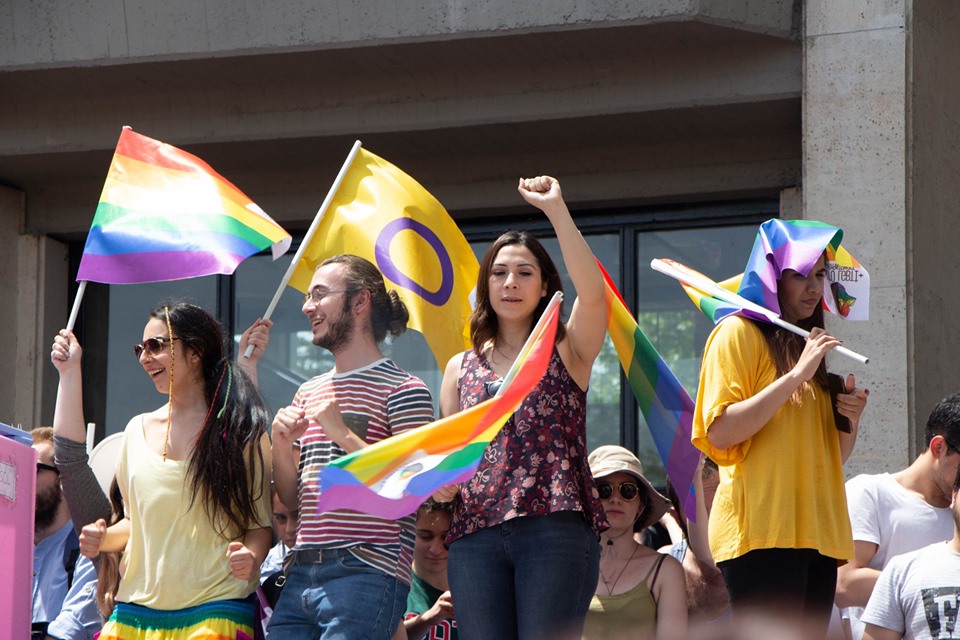
A month after the Turkish elections, for which the winner,Recep Tayyip Erdoğan scapegoated LGBTI people, activists and allies have been rallying at Pride marches across the country. In this blog, we present an up-to-date account of the latest events, as reported by LGBTI activists on the ground in Turkey.
LGBTI activists in Turkey are determined to stand up for human rights. The government, led by President Erdoğan, has been intensifying its systematic attacks on LGBTI individuals since 2015, when Istanbul Pride march was banned for the first time. A month after the re-election of Erdoğan on a ticket that instrumentalised LGBTI people as an enemy, it is Pride season once more in Turkey.
Hate speech, prohibitions, and systematic attacks by Turkish authorities on Pride events have been ongoing ever since that first ban. In 2019, 19 activists were charged with unlawful assembly for participating in a peaceful Pride March at METU University. After a trial that was delayed several times, the METU 19 were eventually acquitted in 2021.
Following his re-election as President of Turkey for another five years, Erdoğan again directed his hostility towards the LGBTI community, targeting LGBTI+ people throughout his campaign and the previous nine years in office. During the election campaign, the ruling bloc expanded its coalition with the New Welfare Party and HÜDAPAR, which are known for their anti-LGBTI+ stance and the ruling party signed a protocol with the New Welfare Party which has been demanding the closure of LGBTI+ associations.
Instead of being discouraged by these daunting events, or the fear of increased pressure from the government, LGBTI activists are working harder than ever to ensure their right to assemble and to be seen. As risks and repression grow, activists on the ground are closely monitoring this Pride season. We will continue to develop this list as news comes in.
Saturday, June 2 – Bilkent University Pride, Ankara: No intervention or arrests occurred.
Friday, June 9 – METU Pride, Ankara: Police intervened and made 15 arrests, but all were released by 03:00.
Sunday, June 12 – Sabancı University of Istanbul: Peaceful event with no arrests or police intervention.
Sunday, June 12 – Cins Klüp: The LGBTI+ student community at Sabancı University, one of the most prestigious universities in Turkey, organised a Pride march on campus despite attempts by the private security unit to prevent it.
June 16-18 – Aydın LGBTI+ Pride Week: No march, only events were held.
Sunday, June 18 – Adana Colors of Resistance organised an event for trans visibility day called “Trans visibility in the struggle of LGBTI+ rights”.
Sunday, June 18 – Trans Pride Istanbul: The newly appointed Istanbul Governor, Davut Gül, had previously targeted Trans Pride and the LGBTI+ Pride March, issuing a threatening message on Twitter with an emphasis on “family”. Although no official ban was issued by the Governorate, the police blocked the Taksim area with barricades on Sunday morning. The police attacked those gathered in the Harbiye district of Beyoğlu and also targeted press workers who were documenting the events. Despite these challenges, activists delivered their press statement and marched for the 9th Trans Pride.
Sunday, June 25 – Istanbul Pride: The march took place without police intervention, but the police intervened after the march had concluded and the number of detainees has reached 64, including foreign nationals in danger of deportation. Relevant UN agencies, LGBTI+ and refugee organizations are following the process.
Sunday, June 25 – Izmir Pride: A ban was announced the night before the march. There was violent police intervention, resulting in the detention of approximately 50 individuals. Protesters were handcuffed behind their backs, manhandled, and kept in detention cars without fresh air for an extended period.
On Sunday 9 July – Eskişehir Pride: Police blockaded the Hasan Polatkan Cultural Center, where the march was to take place. Stating that the Governorate of Eskişehir had issued a ban on 14 June, the police announced that they would not allow the march to go ahead. Those who had gathered for the march asked for time to disperse. The police intervened harshly and detained 18 people, two of whom are lawyers. The detainees were released on the same day.
3-9 July – Adana for LGBTI+ Pride Week: The police intervened during a press statement organised for Pride Week. 18 people, including HDP Provincial Co-Chair, Helin Kaya, were beaten and detained. Green Left Party Mersin MP Perihan Koca was beaten and reverse handcuffed. The detainees were released by midnight.
It is not just Pride marches that face repression and obstruction. LGBTI-themed gatherings and events are also facing similar treatment.
In June, the second Aegean Pride Picnic, organised by LGBTI students at Ege University in Izmir, received open threats from Turkish Youth Union (TGB), the youth branch of the Patriotic Party, Grand Family Platform (Büyük Aile Platformu), TÜGVA and the New Welfare Party and was eventually postponed after the police stated that they could not ensure the safety of LGBTI+ students. When the organisers attempted to read a public statement in front of the Izmir Bar Association, a professional organisation of lawyers defending human rights, the police attacked activists and assaulted lawyers. Despite these challenges, the activists managed to read their statement.
The Pride Picnic of Direnişin Renkleri (The Colors of Resistance), a local student initiative at Izmir Democracy University, had planned their own Pride Picnic on June 13. However, hours before the event, the police initiated a blockade both on the university campus and in the picnic area. The police threatened LGBTI+ students and detained two students by beating them. The detained students were taken to Balçova Police Headquarters but were later released after providing their statements.
On June 14, the Patriotic Party and its youth branch, Turkish Youth Union (TGB), targeted an LGBTI+ Pride Month event scheduled to take place at the Ankara Bar Association. A group of ten people gathered before a gender equality panel and insulted those attending. The police did not intervene, and the event proceeded despite the provocation.
On June 15, the Eskişehir Governorate banned all kinds of LGBTI+ themed public events across the city for a month, citing “public morality”.
Also on June 15, the ‘Tea & Talk’ event for English speakers in Istanbul, organised by Lambda Istanbul, one of the oldest LGBTI+ associations in Türkiye and held in various café’s for years, was banned by the Kadıköy District Governorate. The ban was communicated to the café where the event was supposed to take place. According to the Kadıköy District Governorate, it is “inappropriate” for LGBTI+ individuals to sit in a café, drink tea and engage in conversation.
The concerts of singers Melike Şahin and Mabel Matiz in Bursa and Denizli, respectively, were cancelled due to their LGBTI+ supportive award speeches and celebration pride at the stage at the Elle Style Awards. Denizli’s municipality cancelled Mabel Matiz’s concert without providing any reason. Melike Şahin is known for her support to LGBTI+ movement while Mabel Matiz is an openly queer singer.
As a human rights organisation, ILGA-Europe are deeply concerned about the ongoing challenges faced by LGBTI activists and the repression of LGBTI events in Turkey.
During a recent study visit organised by ILGA-Europe, activists discussed the protection of LGBTI rights in Turkey at different EU institutions. We will continue to follow Prides in Turkey in close contact with activists and to mobilise international support to ensure the freedom of assembly and all human rights of LGBTI people in the country.
The 5 largest attacks on the fundamental rights of LGBTI people in the EU last year

In our submission to the European Commission’s annual Rule of Law report, we’ve identified key trends in the systematic attacks on the rights of LGBTI people across EU member states, and what can be done to counteract them.
Do you know about the EU’s Rule of Law mechanism? It can be used to ensure EU institutions react strongly against LGBTI rights violations across its member states. In the EU, rule of law means that all members of a society, including governments and members of parliaments, are equally subject to the law, under the control of independent and impartial courts.
The rule of law is important because it has a direct impact on the life of every citizen of the EU, and it ensures that laws protecting fundamental rights and democracy are respected by everyone, and can be enjoyed by everyone. It is a fundamental value upon which the EU is based.
Over the past few years it has become increasingly clear that many government-led violations of LGBTI rights in EU member states, go hand-in-hand with an undermining of the rule of law. In ILGA-Europe’s submission to this year’s EU Rule of Law Report, we’ve reported on the systematic attacks on the fundamental rights of LGBTI people across the EU, which have been enabled by the weakening of rule of law and democratic structures in several member states.
ILGA-Europe, with the input of various national-level LGBTI organisations, has submitted written input to inform the 2023 annual report, in order to ensure the violations of LGBTI rights linked to rule of law deterioration are recognised by EU institutions, and are addressed in their follow-up with member states. Here are the trends which we have highlighted to the EC:
Anti-LGBTI bias
In countries where the freedom of the judiciary is weakened, we have been witnessing political interference or bias in court cases related to LGBTI rights. For example, in Poland, the Ministry of Justice uses its powers to repeatedly appeal verdicts that were in favour of LGBTI defendants.
Also, in countries where media freedom is under attack, we are seeing more prevalence of anti-LGBTI bias, smear campaigns and even censorship of LGBTI content.
Harassment and intimidation of LGBTI human rights defenders
Across the EU, hate speech by politicians was a serious issue during 2022, creating an unsafe environment for LGBTI human rights defenders and often related to a rise in hate crime and hate speech against LGBTI people more broadly. LGBTI human rights defenders are still targeted by strategic litigation against public participation (SLAPP) cases, which aim to intimidate activists and journalists to prevent them publishing information about attacks on LGBTI rights. In addition, we saw in Poland that the prosecutor’s office used tactics to intimidate not only LGBTI people ahead of court cases but also judges presiding over cases related to LGBTI rights.
Anti-LGBTI legislation
Legislation aimed at rolling back the rights of LGBTI people continued to be tabled in 2022. The most well-known example of such legislation is the anti-paedophilia legislation adopted by Hungary in June 2021, which includes provisions which ban the “portrayal and the promotion of gender identity different from sex at birth, the change of sex and homosexuality” for persons under 18, and applies these to a number of regulations related to child protection, family, education, media and advertisement.
The European Commission started infringement proceedings against Hungary due to this law in July 2021, taking it to the Court of Justice of the European Union (CJEU) in July 2022. A similar law has since been tabled in Slovakia and Romania, while Poland has drafted a number of laws restricting rights of LGBTI people and currently in Bulgaria draft legislation aims to restrict the functioning of civil society in general.
Judgments are not implemented
Judgments of the Court of Justice of the EU (CJEU) or the European Court of Human Rights (ECtHR) continued to not be implemented last year. The most notable of these is the Coman case from 2018, on freedom of movement for same-sex spouses. Due to its non-implementation in Romania, the country where the case started, it has been taken to the ECtHR. An official complaint was also submitted to the European Commission, with a similar case.
Hate crimes are not investigated
Hate crimes against LGBTI people often are still not sufficiently investigated. A number of EU countries still do not have hate crime legislation with sexual orientation, gender identity or sex characteristics as aggravating grounds. In some countries which do have such legal protection, it is often not implemented properly by police, prosecutors or even Ombudspersons.
So, what can be done?
The EU has a number of tools at its disposal to ensure the respect of the rule of law in all EU countries. The European Commission (EC), the executive arm of the EU, is responsible for guaranteeing the respect of rule of law.
The EU can take specific steps against violations of LGBTI rights in member states, that is if they go against EU legislation and/or if they are rule of law violations. Instruments the EC can use in such cases include so-called infringement procedures, as we see against Hungary and Poland at the moment, triggering Article 7 of the Treaty of the EU, to suspend certain rights from a member state, as well as cuts in EU funding based on rule of law violations.
The EU annual rule of law report highlights breaches of EU and national law, including erosion of democratic standards. Based on this report, the EU institutions talk with EU countries, as well as national parliaments, civil society and other stakeholders in order to address concerns and avoid deterioration.
We hope that our remarks are heard and that the EC will integrate them in its annual Rule of Law Report. LGBTI rights are human rights and must be protected the same way rule of law should be respected in every EU country.
Statement: EuroPride Goes Ahead in Belgrade Despite Calculated Obstruction
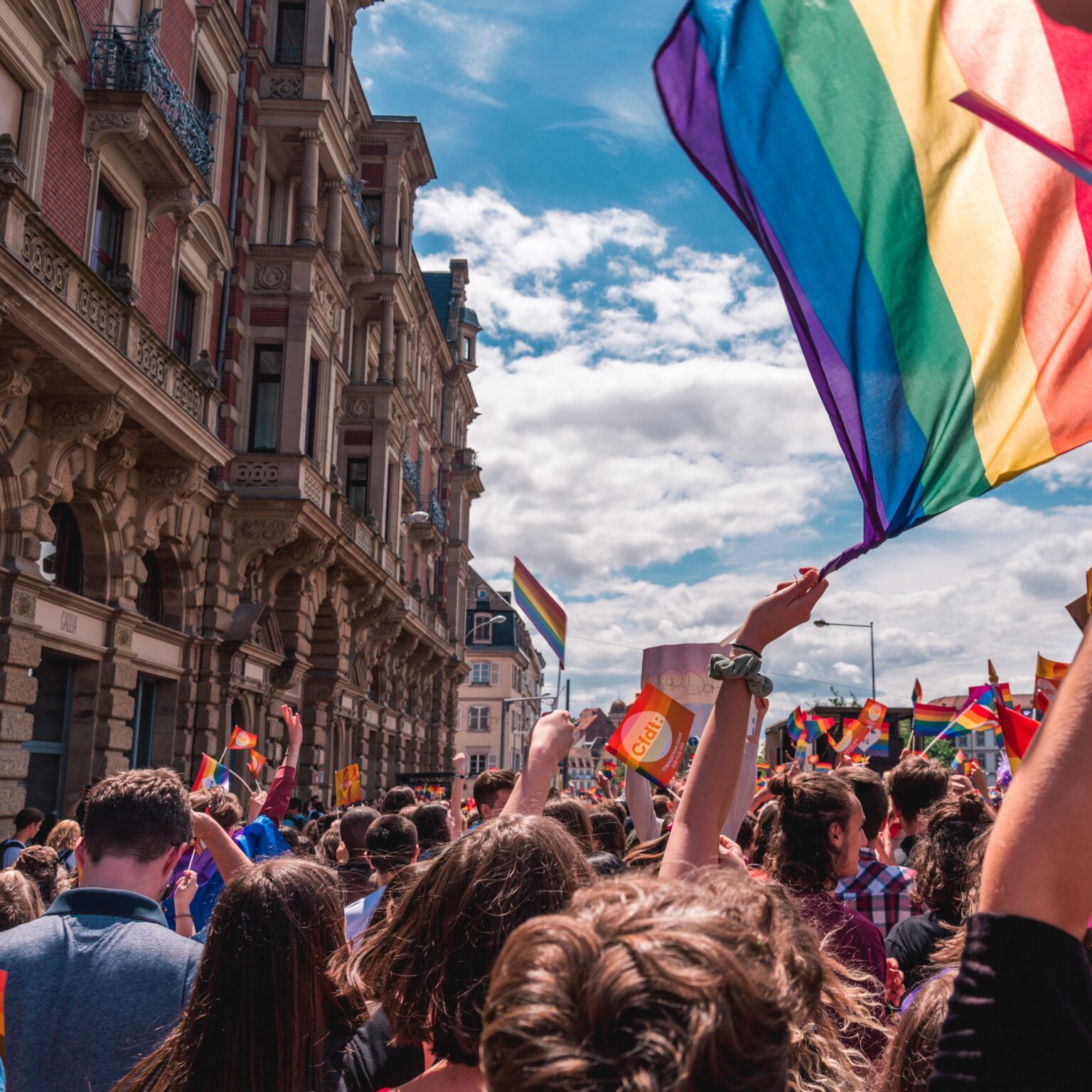
All at ILGA-Europe send our support and solidarity to the organisers of EuroPride and Belgrade Pride, the LGBTI community in Serbia and the Balkans, who have demonstrated such courage and resilience today.
According to Evelyne Paradis, who will be in attendance at the march in Belgrade at 5pm, “The fact that a gathering is taking place after all of this should not be mistaken as the Serbian government upholding its obligations on the right to freedom of assembly.
“They have done everything in their power until the very last minute to obstruct, to discourage, and to intimidate the organisers.
“Beyond the Pride march itself, the risks of increased vulnerability to violence and hatred are very real for citizens in Belgrade and beyond, following repeated anti-LGBTI statements by political and religious leaders in Serbia.
“The unfolding of events since President Vucic announced he would ban EuroPride is a clear case of instrumentalising LGBTI people for political purposes; using LGBTIs as pawns in larger political games, as far-right, anti-democratic forces gain ground with support of external influence.
“I am proud to march with every participant in Belgrade, as we exercise our right to be in this public space, and our inalienable human right to freedom of assembly.”
Statement on the Ban of EuroPride Route in Belgrade
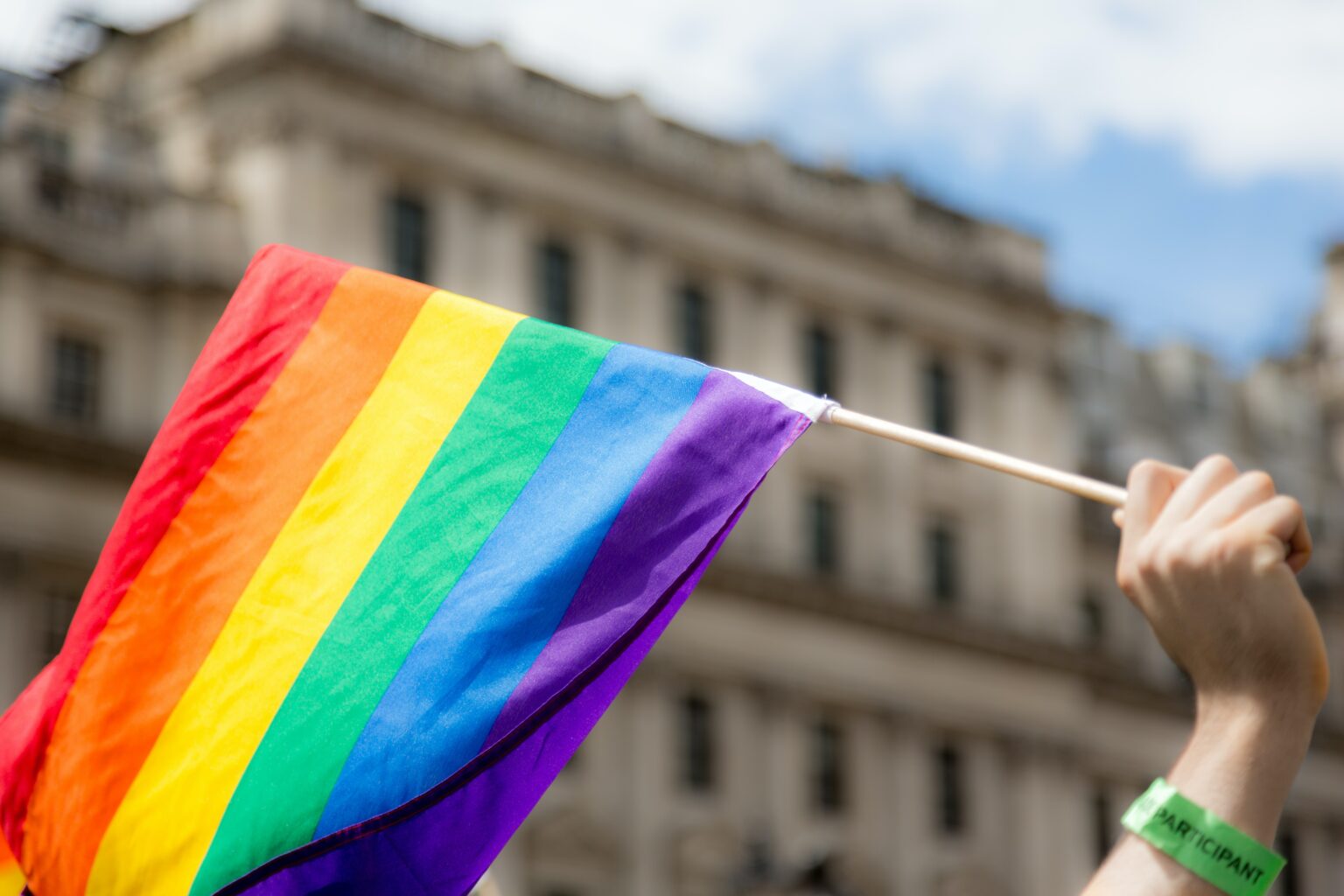
Today, the Serbian police announced an official ban on the route of the EuroPride march in Belgrade this coming Saturday.
On August 28, the Serbian President Aleksander Vučić announced that the EuroPride march in Belgrade planned for September 17 would not go ahead. Today, the Serbian police instead announced a ban on the route for the parade, which had already been agreed between the organisers of Pride and the Serbian authorities.
In response to the ban, our Executive Director, Evelyne Paradis, said, “ILGA-Europe strongly condemns the ban of the EuroPride route announced by the Serbian police, and is deeply concerned by the persisting attempts by the Serbian authorities to prevent the Pride March from going ahead, and taking place safely. Not only is the Serbian government clearly failing to respect its obligations under human rights law to ensure freedom of assembly for all citizens, they also fuel anti-LGBTI rhetoric which puts LGBTI people and community at increased risk of violence.
“We call on the Serbian government to ensure that everyone who wants to join the March on Saturday 17th September in Belgrade is fully able to exercise their right to freedom of assembly, and that they are fully protected both during the march itself and on the streets of Belgrade in its aftermath.
“I will be there to march alongside Belgrade Pride organisations who have already been working for a long time to organise a safe and peaceful EuroPride march this weekend.”
For further comment, please reach out to our press and media officer ana@ilga-europe.org
ILGA-Europe strongly condemns President Aleksandar Vučić’s statement announcing a cancellation of EuroPride 2022
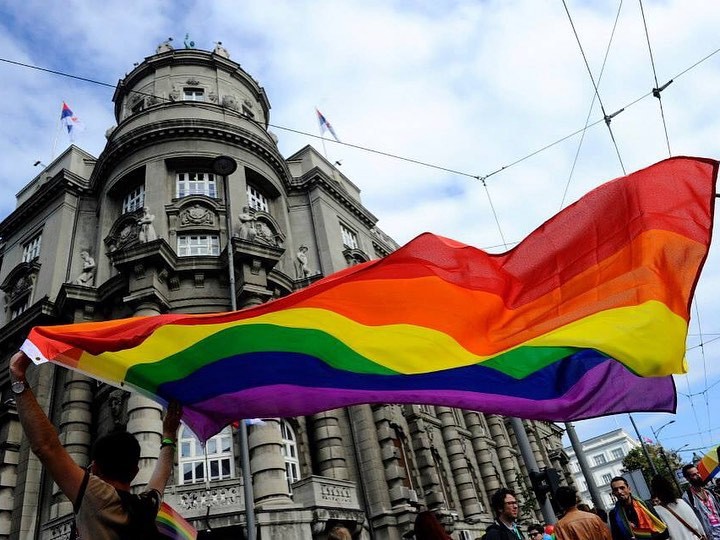
We want to remind President Vučić of Serbia’s commitments under the European Convention of Human Rights, especially with respect to ensuring the effective enjoyment of right to freedom of assembly and expression, as reaffirmed through multiple judgments of the European Court of Human Rights.
Serbia also has an obligation to ensure that participants in peaceful demonstrations, including LGBTI public events and marches, are effectively protected and able to exercise their right safely. Acknowledging that Pride organisers have held safe and peaceful pride marches for 8 consecutive years in Belgrade, we trust that Serbian authorities have demonstrated they can address any security concerns which may arise.
Evelyne Paradis, ILGA-Europe’s Executive Director, commented: “Equality, justice and freedom are not matters that can be put aside when political and economic problems arise. On the contrary, they are cornerstones of building free, democratic and prosperous societies, which should therefore be a priority at all times for any government.”
Many people will be coming to Belgrade for EuroPride 2022, including several European officials, acknowledging the importance of holding the event for the first time in the Western Balkans. ILGA-Europe will also be joining to celebrate with the LGBTI community the growing support from the wider population for LGBTI people in the region.
We therefore reiterate our full support to the organisers of EuroPride 2022 and to the entire LGBTI+ community in the Western Balkans region.
How well protected are LGBTI public events in Europe and Central Asia?
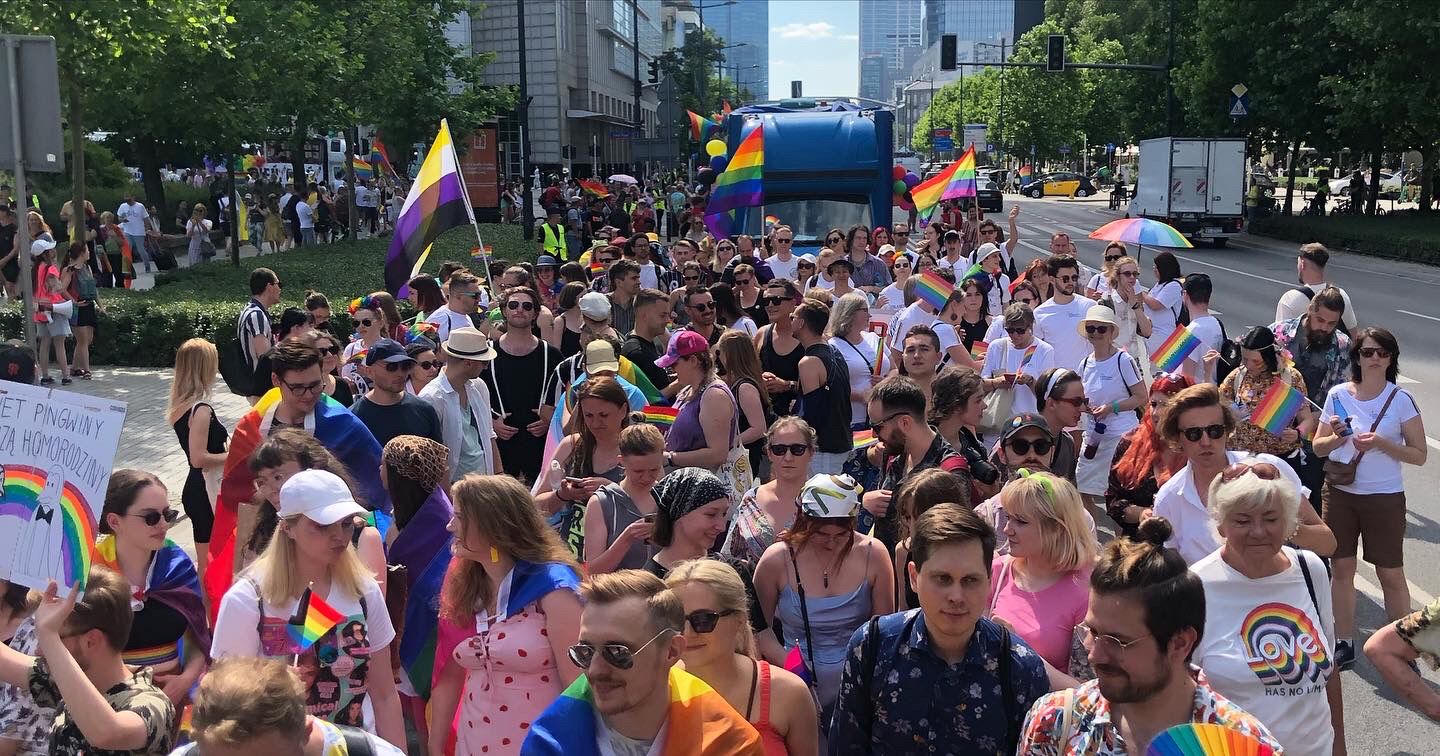
Oslo Pride was cancelled on Saturday in the wake of terrorist attack near the city’s largest LGBTI bar, while over 373 Pride participants were detained in the Turkish capital of Istanbul. Meanwhile, after years of mounting tension and attacks in Poland, Warsaw Pride went ahead without any trouble this weekend. Here’s our overview of the state and protection of freedom of assembly for LGBTI people in the region.
In some cities, Pride is celebrated with freedom, joy and dancing, but in others it is prohibited, as in Istanbul, where roughly 370 participants were arrested this weekend. Or participants are attacked, as they were in the Romanian city of Iasi earlier this month. In Oslo, after the tragic attack on the London Bar on Friday, June 24, the police decided that Pride in the city would be cancelled for the safety of all involved.
Freedom of assembly is a human right, that is the right of LGBTI people to gather in celebration or protest, or simply to put on an event, but as we are seeing, this cannot be taken for granted. Prides and other LGBTI public gatherings remain crucial, as they clearly give us a picture of how well protected the fundamental rights and physical safety of LGBTI people are in any country.
Have a look at some outstanding events from 2021 to 2022 that show the advancement, stagnation or regression of LGBTI people’s freedom of assembly in Europe and Central Asia:
Azerbaijan
Activists in Azerbaijan have announced plans to celebrate Pride for the first time in the country’s history. “We have launched this initiative together to be the voice of all those who are facing problems, are threatened by society and the government, and whose rights are being violated,” feminist activist Rabiya Mammadova said at a press conference in Baku on June 9. “The LGBTQ+ community is threatened by both society and the state. Given the existing threats, the queer community must now find its place in society.”
The exact format and dates of the events are still being decided.
Belgium
A family was attacked by several people after Belgian Pride in Brussels. Three young men, allegedly, first insulted the family because the child was wearing a rainbow flag, and then attacked physically the kid and his mother and sister. The suspects were quickly arrested nearby the place where the aggression took place.
Bosnia and Herzegovina
Third Bosnia and Herzegovina Pride parade was held in Sarajevo under the slogan “Family reunion!” An anti-LGBTI rally was held in the neighborhood of Otoka in the city, entitled “Give us back the rainbow”. The Pride march went without incident despite the counter demonstration.
Bulgaria
Nearly 12,000 people turned out on June 18 for the 15th annual Sofia Pride in Bulgaria, and the crowd was addressed by several foreign ambassadors. According to the Sofia Globe, there were three events in Sofia in protest against Pride and “in defence of the traditional Bulgarian family”, while the week earlier saw the customary objection by the Bulgarian Orthodox Church, and weeks ago, calls by ultra-nationalists in Sofia city council for Sofia Pride to be banned. Despite these counter demonstrations and recent attacks against LGBTI people and premises, Sofia Pride went without incidents
Croatia
The 21st Zagreb Pride took place on June 4 under the motto “Give us our four walls!”, with activists demanding that LGBTI people be given afforded a centre in the city. Mayor Tomislav Tomaševi? announced he would talk with LGBT associations about their demands.
Estonia
On Saturday, June 11, Pride was held for the first time ever in Tartu, Estonia’s second-largest city. About 1,000 people from the LGBT+ community and their supporters marched from Vanemuise Park to Tartu’s Town Hall Square, where speeches were given among others by Brian Roraff, the temporary deputy assistant US ambassador to Estonia, Ingrid Tersman, the Swedish ambassador, and Ross Allen, the British ambassador in Tallinn.
France
Several trans women were attacked at Paris Pride by trans exclusionary forces in 2021. In Bordeaux Pride this year, a LGBTphobic sign read “Protect the children. Stop LGBT madness”. Other participants were attacked and nine people were arrested. Furthermore, six people were injured after the structure of a float fell apart, an accident, in principle, not connected to the anti-LGBTI attacks.
Georgia
The safety and freedom of expression and assembly of “each individual” will be protected during the upcoming Tbilisi Pride Week, Georgia’s Interior Ministry announced this week, as the city’s celebrations began. The organisers however decided this year not hold the Dignity March, to see how the Ministry of Interior would protect closed events. The ministry also called on anti-LGBTI protest groups to “abide by the law”, noting otherwise “each case” of violation would be prevented and a “strict legal response” would follow.
Organisers of the Pride Week announced at the weekend that the Conservative Movement political party, which is affiliated with the Georgian right-wing media outlet Alt-Info, had “openly declared” it would attack the Pride Week and “repeat the events” of July 5 last year, when right-wing activists assaulted and injured over 50 journalists who had gathered to cover the eventually cancelled Tbilisi Pride march.
Hungary
Amid the introduction of anti-LGBTI legislation by the ruling Fidesz party, last year’s Budapest Pride march brought together a record 35,000 people and the country’s first Pride march outside the capital took place in Pécs. After national elections that saw Fidesz hold on to power, although an anti-LGBTI referendum on the same day was invalidated, Budapest Pride will take place again on July 23.
Kazakhstan
On March 8, 2021, Feminita along with other grass roots feminist groups and activists managed to get a permission to organise the Women’s March for the first time in one of the largest cities of Kazakhstan in Almaty. The march was a success gathering women of all walks, including LBQT women and displaying LGBTI symbols along the streets of Almaty. However, in 2022 the Women’s March was restricted yet another time. Following the political crisis that spread all over the country in January 2022, the authorities banned various public events, including marches. Feminita and other local groups organised a gathering rather than a full-fledged march like the one the year before.
Liechtenstein
Pride took place in the country for the first time on 11 June, 2022.
Lithuania
Last year, Kaunas celebrated its first Pride after a court ruled against the refusal of the municipality to grant a permit. 2,000 people attended and although there were several counter-demonstrations and attacks, civil society assessed the police’s work as generally good.
North Macedonia
The third Skopje Pride took place on 25 June under the slogan “Come Out for Love! Dignity. Equality. Justice”. The Pride took place without incident.
Norway
An impromptu protest with hundreds of marchers took place in Oslo, after police cancelled Pride in the wake of an attack on the LGBTI community by radicalised Islamist, Zaniar Matapour in the early hours of the day. Two people were killed and 21 injured in the attack. An official demonstration of solidarity with the victims of the attack was held in the city yesterday, Monday June 27
Poland
This year, Warsaw Pride twinned with Kyiv Pride, in support of Ukrainian LGBTI people affected by the war in Ukraine and of course unable to hold Kyiv Pride in Kyiv itself this year. Many European officials were in attendance and the parade went ahead without any attempt at a ban or negative incidents.
Romania
Pride participants in Iasi, the largest city in eastern Romania, were attacked by conservative and religious protesters on June 5. The anti-Pride protesters chanted “Iasi is not Sodom’ and then attacked the Pride marchers by throwing eggs and setting off flares. A police Gendarmerie bus separated the two groups along the route of the march, and officers were deployed to prevent tensions from escalating further. Last year Bucharest Pride and Ia?i Pride were blocked by their respective municipalities, but thanks to work of LGBTI activists were allowed to go ahead eventually, albeit with restrictions.
Turkey
On Sunday, June 26 police forcibly intervened in the Istanbul Pride march in Istanbul, detaining 373 demonstrators including journalists and photographers. Hundreds of protesters carrying rainbow flags pressed ahead with the rally in defiance of police. This police attack on Pride was one of a number this year, as in previous years. Already on 20 May Bo?aziçi University Pride was forcibly repressed by police, with 70 detentions, and METU Pride was repressed on 10 June with 38 detentions. The first Canakkale LGBTI+ Pride Week, planned for 13-17 June, was banned by Çanakkale Governorship, the first Datça LGBTI+ Pride Week was attacked by police on 20 June, Izmir Pride was banned and police detained 12 people. Eski?ehir Pride is planned for 3 July but the governorate has already issued a ban, and Ankara Pride is scheduled for 28 July. Violent police intervention is expected at both events.
Joint Statement: METU Pride human rights defenders must be acquitted at upcoming trial
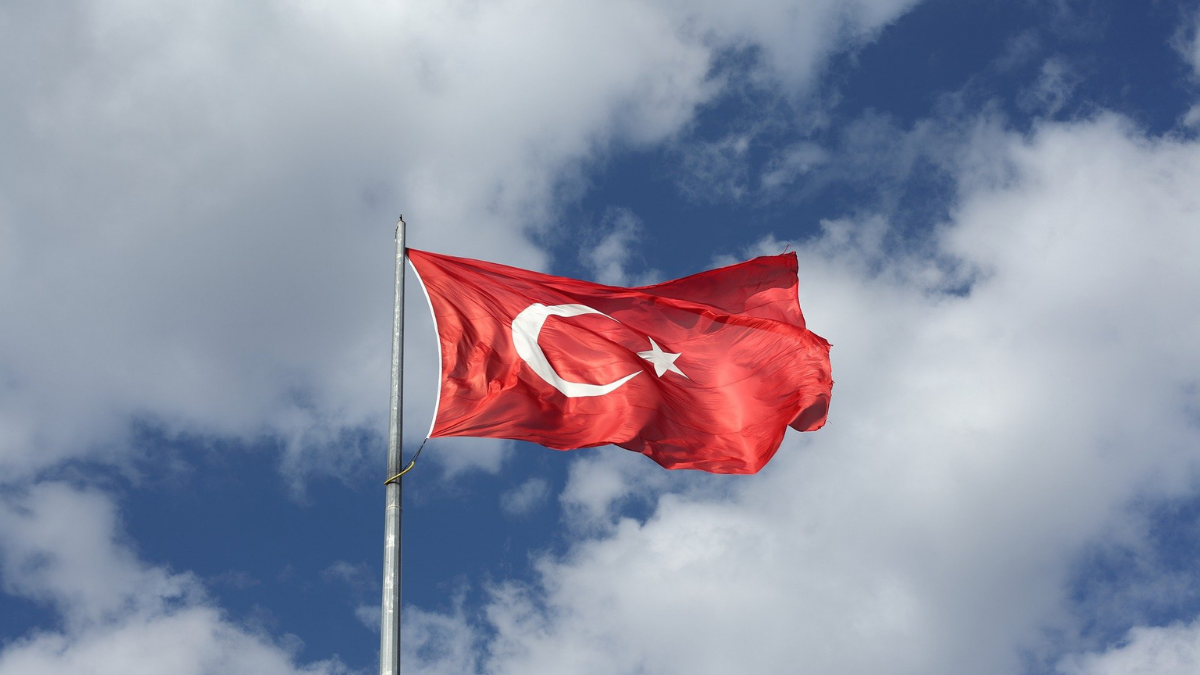
On 8 October at 10:00 GMT+3, 19 LGBTI+ human rights defenders will return to court for what is expected to be the final hearing in the unfair trial they faced for organising and participating in a peaceful Pride march on the campus of Ankara’s Middle East Technical University (METU) on 10 May 2019.
WE, THE UNDERSIGNED HUMAN RIGHTS ORGANISATIONS, CALL FOR THE ACQUITTAL OF ALL THE DEFENDANTS IN THE ABSENCE OF ANY EVIDENCE OF CRIMINAL CONDUCT, AND TO BRING AN END TO THE SERIES OF POSTPONEMENTS OF THE TRIAL HEARINGS, WHICH HAVE SPANNED OVER MORE THAN TWO YEARS NOW.
Türkçe versiyonunu aşağıda bulabilirsiniz.
The 19 LGBTI+ human rights defenders face charges of “participating in an unlawful assembly” and “failing to disperse despite being warned,” for participating in the Pride march on the METU campus on 10 May 2019. Earlier in the year, on 21 February 2019, the Ankara District Administrative Court No. 12 had lifted the blanket ban prohibiting all LGBTI+ activities in Ankara, introduced in 2017 under the state of emergency, on the grounds that it was unlawful as it restricted rights and freedoms in unconditional, vague and disproportionate ways. Nevertheless, the University management used the initial ban as the legal basis to prohibit the march.
The celebration of METU Pride had taken place peacefully on an annual basis since 2011. However, on 6 May 2019, the administration of METU unlawfully banned the peaceful gathering. On 7 May 2019, METU LGBTI+ Solidarity group challenged this ban at the Ankara Administrative Court. In the meantime, since the METU administration’s decision contravened the Ankara court’s February ruling, activists and students exercised their legal right to freedom of assembly and gathered to proceed with their annual Pride celebration on campus. In response, the university administration contacted the Ankara Security Directorate to request their intervention in order to prevent the celebration of the march.
The police used excessive force on peaceful protestors on the day of the march on 10 May: tear gas and plastic bullets were fired at the crowd, students were dragged across the ground, pushed up against trees and sustained head injuries. The excessive use of force deployed during the police intervention violates the right to peaceful assembly, which is protected under domestic law and international laws, including the European Convention on Human Rights, to which Turkey is a party.
In June 2020, the Ankara Administrative Court No. 7 gave a judgement in relation to the case brought by METU LGBTI+ Solidarity, citing the 2019 ruling by the Ankara District Administrative Court No. 12 which had quashed the blanket ban on all LGBTI+ events in the capital, stating that “although specific assemblies and demonstrations may be banned, the right to peaceful assembly and demonstration should be protected as an inalienable right in a democratic society” and that “the State has an obligation to take necessary measures to ensure this right can be exercised securely”. This ruling confirmed that the METU administration’s ban on the May 2019 Pride March on campus had no legal basis. Despite this, the defendants have yet to be acquitted.
The defendants have been facing a trial that has lasted over two years since the opening of the criminal case against them in August 2019, and which hangs like a cloud over their heads and negatively impacts their everyday lives, affecting them personally, academically, and professionally.
We therefore call for the acquittal of all 19 human rights defenders at the hearing of 8 October taking place at Ankara’s 39th Penal Court of First Instance. We further call on the Turkish authorities to ensure that the security forces and METU administration uphold the right to freedom of peaceful assembly as enshrined in domestic law and international human rights law, by ensuring that future Pride marches at METU campus and in Ankara take place without obstruction. We also call on the Turkish authorities to conduct a prompt, independent and impartial investigation into the excessive use of force by the police on the campus, and for police officers responsible for arbitrary or abusive force to be brought to justice.
- Agir ensemble pour les droits humains
- Amnesty International
- Civil Rights Defenders
- Front Line Defenders
- Human Rights Without Frontiers
- ILGA-Europe – the European Region of the International Lesbian, Gay, Bisexual, Trans and Intersex Association
- International Federation for Human Rights (FIDH), in the framework of the Observatory for the Protection of Human Rights Defenders
- Netherlands Helsinki Committee
- World Organisation Against Torture (OMCT), in the framework of the Observatory for the Protection of Human Rights Defenders
Ortak Açıklama: ODTÜ Onur Yürüyüşü’ne katılan insan hakları savunucuları gelecek duruşmada beraat etmeli
8 Ekim günü saat 10.00’da, 19 LGBTİ+ hakları savunucusu, 10 Mayıs 2019’da Orta Doğu Teknik Üniversitesi (ODTÜ) kampüsünde gerçekleştirilen barışçıl Onur Yürüyüşü’nü düzenledikleri ve yürüyüşe katıldıkları gerekçesiyle haksız yere yargılandıkları davanın karar duruşması olması beklenen duruşmaya katılmak için mahkemede olacak. Biz, aşağıda imzası bulunan insan hakları örgütleri, suç teşkil eden bir fiile ilişkin herhangi bir kanıtın yokluğunda, yargılanan tüm kişilerin beraat etmesi ve iki yıldan uzun süredir devam eden davanın duruşmalarında yapılan bir dizi ertelemeye artık bir son verilmesi için çağrıda bulunuyoruz.
19 LGBTİ+ hakları savunucusu, 10 Mayıs 2019’da ODTÜ kampüsünde gerçekleştirilen Onur Yürüyüşü’ne katıldıkları için “kanuna aykırı toplantıya katılmak” ve “ihtara rağmen kendiliğinden dağılmamak” ile suçlanıyor. Aynı yıl daha önceki bir tarihte, 21 Şubat 2019’da Ankara 12. Bölge İdare Mahkemesi, 2017’de olağanüstü hal döneminde çıkartılan ve Ankara’daki tüm LGBTİ+ etkinliklerini yasaklayan genel yasağı temel hak ve özgürlükleri koşulsuz, belirsiz ve ölçüsüz olarak kısıtlandığı ve hukuka aykırı olduğu gerekçesiyle kaldırmıştı. Buna rağmen üniversite yönetimi, önceki yasağı yürüyüşü yasaklamak için yasal bir dayanak olarak kullandı.
ODTÜ Onur Yürüyüşü 2011’den beri her yıl barışçıl biçimde gerçekleştiriliyordu. Ancak 6 Mayıs 2019’da ODTÜ yönetimi barışçıl Onur Yürüyüşü’nü hukuka aykırı şekilde yasakladı. 7 Mayıs 2019’da ODTÜ LGBTİ+ Dayanışması Ankara 7. İdare Mahkemesi’ne başvurarak yasağa itiraz etti. Bu sırada, ODTÜ yönetiminin kararı Ankara 12. Bölge İdare Mahkemesi’nin Şubat ayındaki kararına aykırı olduğu için aktivistler ve öğrenciler yasal toplanma özgürlüğü haklarını kullanarak Onur Yürüyüşü’nü gerçekleştirmek üzere kampüste toplandı. Bunun üzerine üniversite yönetimi, yürüyüşü engellemek için Ankara Emniyet Müdürlüğü’yle iletişime geçerek müdahale edilmesini istedi.
Yürüyüş günü, 10 Mayıs’ta, polis barışçıl protestoculara aşırı güç kullandı: Kalabalığa biber gazı ve plastik mermiler sıkıldı, öğrenciler yerlerde sürüklendi, ağaçlara itildi ve kafalarından yaralandılar. Polis müdahalesi sırasında başvurulan aşırı güç kullanımı, Türkiye’nin taraf olduğu Avrupa İnsan Hakları Sözleşmesi dahil olmak üzere uluslararası hukuk ve iç hukukun güvence altına aldığı barışçıl toplanma hakkının ihlalidir.
Haziran 2020’de Ankara 7. İdare Mahkemesi, Ankara 12. Bölge İdare Mahkemesi’nin 2017’den beri başkentteki tüm LGBTİ+ etkinliklerine yönelik genel yasağı kaldıran 2019’daki kararına atıfta bulunarak “belirli toplantı ve gösteri yürüyüşlerinin yasaklanması mümkün olmakla birlikte barışçıl toplantı ve gösteri yürüyüşü hakkının demokratik bir toplumda vazgeçilmez haklardan biri olarak korunması gerektiği”ni ve “devletin toplanma özgürlüğünün kullanılmasını sağlamak için gereken önlemleri almakla yükümlü olduğu”nu belirtti. Bu karar, ODTÜ yönetiminin Mayıs 2019’da kampüsteki Onur Yürüyüşü’ne getirdiği yasağın hukuki dayanağı olmadığını doğruladı. Buna rağmen yargılanan kişiler hâlâ beraat etmedi.
19 kişi, Ağustos 2019’da haklarında açılan ve iki yıldan uzun süren, bu süre boyunca onları kaygılandıran ve günlük yaşamları üzerinde olumsuz etkiler yaratan; onları kişisel, akademik ve mesleki anlamda etkileyen bir davayla karşı karşıya.
Bu nedenle, 8 Ekim’de Ankara 39. Asliye Ceza Mahkemesi’nde görülecek duruşmada 19 insan hakları savunucusunun tamamının beraat etmesi için çağrı yapıyoruz. Türkiye yetkililerini, güvenlik güçleri ve ODTÜ yönetiminin, gelecekte ODTÜ kampüsünde ve Ankara’da yapılacak Onur Yürüyüşlerinin herhangi bir engellemeyle karşılaşmaksızın gerçekleştirilmesini sağlayarak, iç hukuk ve uluslararası insan hakları hukukunca güvence altına alınan barışçıl toplanma özgürlüğü hakkını korumasını sağlamaya çağırıyoruz. Ayrıca, Türkiye yetkililerini, polisin kampüsteki aşırı güç kullanımına ilişkin hızlı, bağımsız ve tarafsız bir soruşturma yürütmeye ve keyfi veya görevi suiistimale dayalı güç kullanan kolluk görevlilerinin adalet önüne çıkarılmasını sağlamaya çağırıyoruz.
- Agir ensemble pour les droits humains
- Uluslararası Af Örgütü
- Civil Rights Defenders
- Front Line Defenders
- Sınır Tanımayan İnsan Hakları Örgütü
- ILGA-Avrupa (Uluslararası Lezbiyen, Gey, Biseksüel, Trans ve İnterseks Derneği Avrupa Bölgesi)
- Uluslararası İnsan Hakları Federasyonu (FİDH) – İnsan Hakları Savunucularının Korunması için Gözlemevi
- Hollanda Helsinki Komitesi
- İşkenceye Karşı Dünya Örgütü (OMCT) – İnsan Hakları Savunucularının Korunması için Gözlemevi
We welcome today’s judgment from the European Court of Human Rights in the case of Association ACCEPT and Others v. Romania
We welcome today’s judgment from the European Court of Human Rights in the case of Association ACCEPT and Others v. Romania.
The Court found a violation of Article 8 (right to private and family life) and 11 (freedom of association and assembly) together with Article 14 (prohibition of discrimination).
The case concerned a protest against a screening of a film involving a same-sex family during the applicant association’s LGBT History Month in February 2013. The protesters were carrying far-right paraphernalia and cinemagoers had been verbally abused.
Court found that the authorities had failed to offer adequate protection in respect of the individual applicants’ dignity and private life, and to effectively investigate the real nature of the homophobic abuse directed against them. Importantly the Court pointed out that “in doing so, the authorities showed their own bias towards members of the LGBT community”.
- You can download the judgment here.
Turkish court postpones trial of 19 Pride attendees, infringing their right to fair judicial process
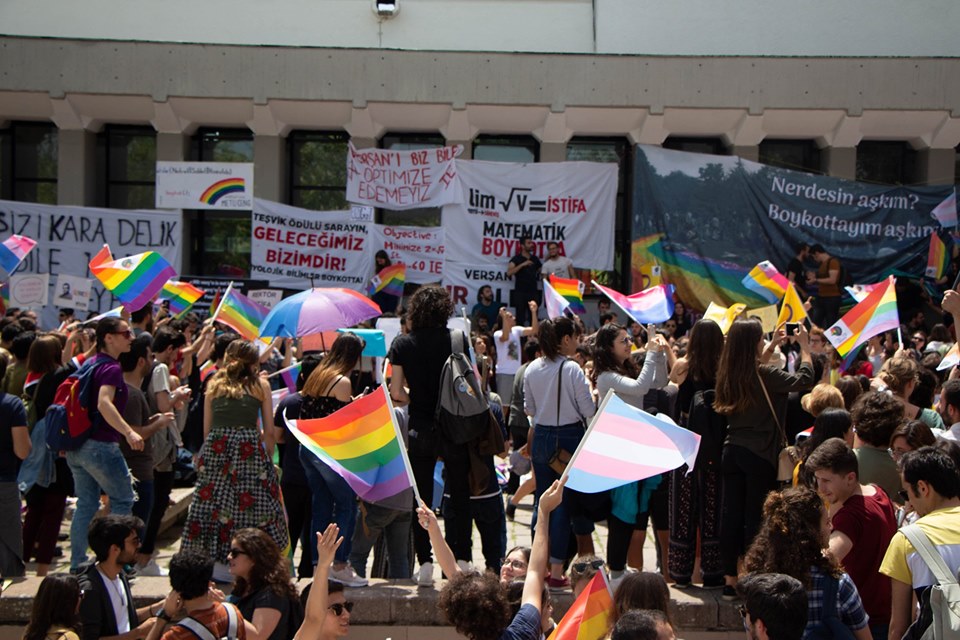
The Turkish courts’ postponement until next April of the trial of 19 people accused of “unlawful assembly” after taking part in an LGBTI Pride march last year is clearly infringing their right to a fair trial, and sending a worrying signal from the judiciary, says ILGA-Europe.
During the hearing, all the defendants gave testimonies explaining how this trial is a cloud over their heads which negatively impacts their everyday lives. The trial has lasted one and a half years so far, and has affected them personally, academically, and professionally. This further postponement to 30 April 2021 means that the defendants will have been under this pressure for almost two years, and they argue that this constitutes a violation of their human rights.
According to Özgür Gür, from METU LGBTI+ Solidarity: “This trial is not only against the METU students, but against Pride marches around the country.”
Melike Balkan, from METU LGBTI+ Solidarity added: “We have repeatedly asked the police to give us the reason for their presence at the campus, and they continued to point to the ban by the governor of Ankara, but it is clear through the Turkish governments’ response to the UN that the governor could not ban an event on campus grounds. Police forces misled us and prevented us from exercising our basic human rights.”
According to Katrin Hugendubel, Advocacy Director at ILGA-Europe: “LGBTI rights have been systematically attacked in Turkey in recent years and by postponing the trial yet again without any comprehensible reasons, the courts are clearly infringing the right to a fair trial and fair judicial process. This is a worrying signal from Turkey’s judiciary, especially in the context of rising hate-crime and hate-speech against the LGBTI community in the country. In 2020, LGBTI activists in Turkey have seen their offices targeted by violence, their online spaces restricted, and the LGBTI community has been blamed for the COVID-19 pandemic by religious and political leaders.
“The right to freedom of assembly, which Turkey is bound to respect according to its Constitution and the European Convention on Human Rights, to which it is a party, needs to be clearly upheld. ILGA-Europe will continue to work with international institutions and supporters to try to ensure a fair trial that will respect the right to freedom of assembly and non-discrimination of LGBTI people in Turkey, and which will acquit the unlawfully accused activists at the next hearing.”
On Wednesday, in a separate case, a district court in Istanbul ruled that last year’s ban on the city’s Pride march was unlawful and in breach of the Turkish Constitution, the European Convention on Human rights, and other international agreements to which Turkey is party.
Further information:
- Read our joint statement with 8 international human rights organisations here, and download it in English and Turkish.
- Read our pre-trial press release, published on 7 December 2020.
- Timeline of the story so far.
For further comment, contact: Ana Muñoz Padrós, ILGA-Europe: ana@ilga-europe.org, +32 493 35 60 55
Turkey: 19 LGBTI Pride marchers must be acquitted in forthcoming trial

Turkey must uphold its domestic and international commitments, and dismiss all charges against 19 human rights defenders, prosecuted for their participation in a peaceful Pride march at Middle East Technical University (METU) in Ankara in May 2019, says Europe’s largest LGBTI rights umbrella organisation, ILGA-Europe.
On December 10, International Human Rights Day, 18 students and one academic, who were detained, charged and prosecuted for their participation in a peaceful LGBTI Pride march at Turkey’s Middle East Technical University (METU), will come to trial. Although they were exercising their right to freedom of assembly, the 19 human rights defenders face charges of “participating in an unlawful assembly” and “failing to disperse despite being warned”. If found guilty, they could face up to three years in prison.
METU Pride had peacefully taken place in the city of Ankara every year since 2011. However, on 10 May 2019, a few days before the annual event, the administration of METU said it could not go ahead. Ankara had banned all LGBTI+ activities under a state of emergency in 2017, but this ban had been lifted earlier in 2019. There was no legal basis for METU’s administration to ban the march, so activists and students got together and exercised their legal right to freedom of assembly, celebrating LGBTI Pride. The administration then called the police, who used excessive force to disperse the march. Tear gas and plastic bullets were fired at the crowd, students were dragged across the ground, pushed up against trees and sustained head injuries.
22 METU Pride participants were detained, 19 of whom were subsequently charged. The first hearing of the court case took place in November 2019, but a judgement has been postponed several times, due to COVID-19 pandemic measures.
Says Turkish NGO, ÜniKuir: “We do not accept the prohibition, marginalisation or prosecution of the METU Pride march or any Pride march. We have to speak out against this injustice and we ask you to speak out with us.”
LGBTI rights have been systematically attacked in Turkey and any outcome other than the acquittal of the METU Pride human rights defenders goes against Turkey’s own legislation and the European Convention of Human Rights, of which Turkey is signatory.
According to activists from METU LGBTI+ Solidarity: “Turkey is ignoring the international treaties that they are a party to and violate our basic human rights, on Human Rights Day. We are standing with all of our colours against this injustice.”
Katrin Hugendubel, Advocacy Director for ILGA-Europe says: “It is incredibly important that Turkey upholds its international and domestic human rights commitments by acquitting the METU Pride LGBTI activists on 10 December. Anything else would be a slap in the face for human rights and the decision of the Ankara Administrative Court to lift the ban. All Turkish citizens should enjoy the right to freedom of assembly, and this judgement will set a precedent for forthcoming similar trials in Turkey.”
Further information:
- Read our joint statement with 8 international human rights organisations here, and download it in English and Turkish.
- Timeline of the story so far.
For further comment, contact: Ana Muñoz Padrós, ILGA-Europe: ana@ilga-europe.org, +32 493 35 60 55
Joint statement: The only just outcome is the acquittal of the METU Pride human rights defenders

We, the undersigned human rights organisations, believe that the only just outcome in the unfair prosecution of 19 human rights defenders for their participation in a peaceful Pride march on the campus of Ankara’s Middle East Technical University (METU) on 10 May 2019 is their wholesale acquittal at their next hearing on 10 December at 09:00 UTC+3.
The human rights defenders face charges of “participating in an unlawful assembly” and “failing to disperse despite being warned,” despite the fact that earlier in the year, on 21 February 2019, the Ankara Administrative Appeals Court had lifted the blanket ban prohibiting all LGBTI+ activities in Ankara introduced under the state of emergency, which was used as the legal basis to ban the march. The regional court lifted the ban on the grounds that it was unlawful and restricted rights and freedoms in unconditional, vague, and disproportionate ways.
METU Pride had been organised peacefully every year since 2011. However, on 6 May 2019, the administration of METU unlawfully banned the METU Pride march. Since the administration’s decision contravened the Ankara court’s ruling, activists and students exercised their legal right to freedom of assembly and gathered to proceed with their annual march. The university administration then contacted the Ankara Security Directorate asking them to intervene to prevent the march from taking place.
The police used excessive force on peaceful protestors on the day: tear gas and plastic bullets were fired at the crowd, students were dragged across the ground, pushed up against trees and sustained head injuries. The excessive force used during the police intervention is a clear violation of the right to peaceful assembly, which is protected under domestic law and international laws, including the European Convention of Human Rights, to which Turkey is a party.
Despite there being ample video footage of the police violence, to-date, none of the police officers seen using excessive force have been charged. On the contrary, 18 students and an academic who were exercising their right to freedom of assembly were detained, charged and prosecuted, facing a possible prison sentence of up to three years.
In June 2020, the Ankara Administrative Court No. 7 made reference to the 2019 ruling by the Ankara District Administrative Court No. 12 which quashed the blanket ban on all LGBTI+ events in the capital in place since 2017, stating that “although specific assemblies and demonstrations may be banned, the right to peaceful assembly and demonstration should be protected as an inalienable right in a democratic society” and that “the State has an obligation to take necessary measures to ensure this right can be exercised securely”. This ruling confirms that the METU administration’s ban on the May 2019 Pride March on campus had no legal basis.
We therefore call on the trial prosecutor to recommend the acquittal of all the human rights defenders at the hearing on 10 December, and for all the relevant authorities in Turkey to ensure that the security forces and METU administration uphold the right to freedom of peaceful assembly as enshrined in domestic law and international human rights law, by ensuring that future Pride marches at METU campus and in Ankara take place without obstruction. We also call on the Turkish authorities to conduct a prompt, independent and impartial investigation into the excessive use of force by the police on the campus, and for police officers responsible for arbitrary or abusive force to be brought to justice.
- Agir ensemble pour les droits humains
- Amnesty International
- Civil Rights Defenders
- Front Line Defenders
- Human Rights Without Frontiers
- ILGA-Europe – the European Region of the International Lesbian, Gay, Bisexual, Trans and Intersex Association
- International Federation for Human Rights (FIDH), within the framework of the Observatory for the Protection of Human Rights Defenders
- Netherlands Helsinki Committee
- World Organisation Against Torture (OMCT), within the framework of the Observatory for the Protection of Human Rights Defenders
Further information:
- Read our press release dated 7 December 2020.
- Watch and share our video on Twitter in support of the METU LGBTI+ Solidarity’s campaign.
- Timeline of the story so far.
Turkey’s shocking Pride March trial: The story so far

18 students and one academic face up to three years imprisonment in Turkey, should a judgement be made against them on December 10. The charges? Participating in a Pride march. Here’s the story so far, and how you can stand up for the METU 19.
In May 2019, 19 LGBTI rights defenders were detained while gathering for a Pride march at the Middle East Technical University (METU) in the Turkish city of Ankara. The city’s governor had placed an indefinite ban on LGBTI+ public events in November 2017, under the state of emergency, which was then lifted by the Ankara court earlier in the year, months before the METU Pride march. Despite this, the METU administration still banned Pride.
Because the university administration’s decision contravened the Ankara court’s ruling, activists and students exercised their legal and human right to freedom of assembly and gathered to proceed with their annual peaceful march. The university administration then contacted the police and asked them to intervene.
Arriving at the campus, Police used excessive force to disperse the students after the peaceful Pride march began. Tear gas and plastic bullets were fired at the crowd, students were dragged across the ground, pushed up against trees and sustained head injuries, and 23 people were detained and prosecuted. After several postponements, on 10 December, 2020, which also happens to be International Human Rights Day, 19 of the detained people will face judgement, and up to three years in prison if they are not acquitted.
Gathering for a Pride march is a human right. According to Article 11 of the European Convention of Human Rights: “Everyone has the right to freedom of peaceful assembly and to freedom of association with others.” Turkey is signatory of the convention.
What are the charges?
Participating in “unlawful assembly” (a peaceful Pride March) at the Middle East Technical University (METU) in 2019, and “resisting despite warning”. One student was also charged with insulting a police officer. The prosecution office claims that the police used proportional force, however, police violence was documented in eyewitness reports and video footage. None of the police officers seen using excessive force at the event have been charged.
Ahead of the trial, have a look at the timeline of events and join us in showing solidarity with the METU 19.
1996:
Students at METU formed a group to ensure a safe space for LGBTI+ people at the university.
2011:
The first METU Pride was celebrated.
November 2017:
A blanket indefinite ban on public events focused on LGBTI+ rights was issued in Ankara, using the state of emergency powers. Despite the ending of emergency rule in July 2018, the Ankara Governor’s office did not lift the ban until two years later.
21 February 2019:
Ankara’s 12th Administrative Court lifted the blanket ban on LGBTI events in the city.
6 May 2019:
The METU University Rector, Mustafa Ver?an Kök, sent an email to all students, graduates, and faculty members, informing them that the Rectorate was prohibiting Pride events.
10 May 2019:
The METU Pride march went ahead, in accordance with the Ankara Court’s lifting of the ban. 22 people - 21 students and one professor — were detained after police forces entered the campus at the request of the university administration. Police dispersed the crowd using pepper spray, tear gas and plastic bullets. All 22 detainees were released later that day.
2 August 2019:
19 of the 22 detained LGBTI+ rights defenders were notified that a criminal case had been opened against them, related to the charges of “participating in an unlawful assembly” and “resisting despite warning”, under Article 2911 of the Turkish Penal Code.
12 November 2019:
The first hearing of the court case took place. The judgement was postponed until 12 March, 2020.
12 March 2020:
The judgement was again postponed until 10 July, 2020.
24 June 2020:
An Ankara administrative court annulled the university’s ban on 2019 METU Pride March.
12 July 2020:
The judgement was pushed back again, due to the COVID-19 pandemic.
10 December 2020:
The trial is scheduled for the 19 LGBTI activists.
Join our campaign!
Here is how you can join the campaign to show your support for the METU 19 and for freedom of assembly in Turkey and everywhere. Film a video of yourself saying what Pride means to you and share on your social media accounts using the hashtags #BenimOnurYürüyü?üm and #ODTÜRengineKavu?sun